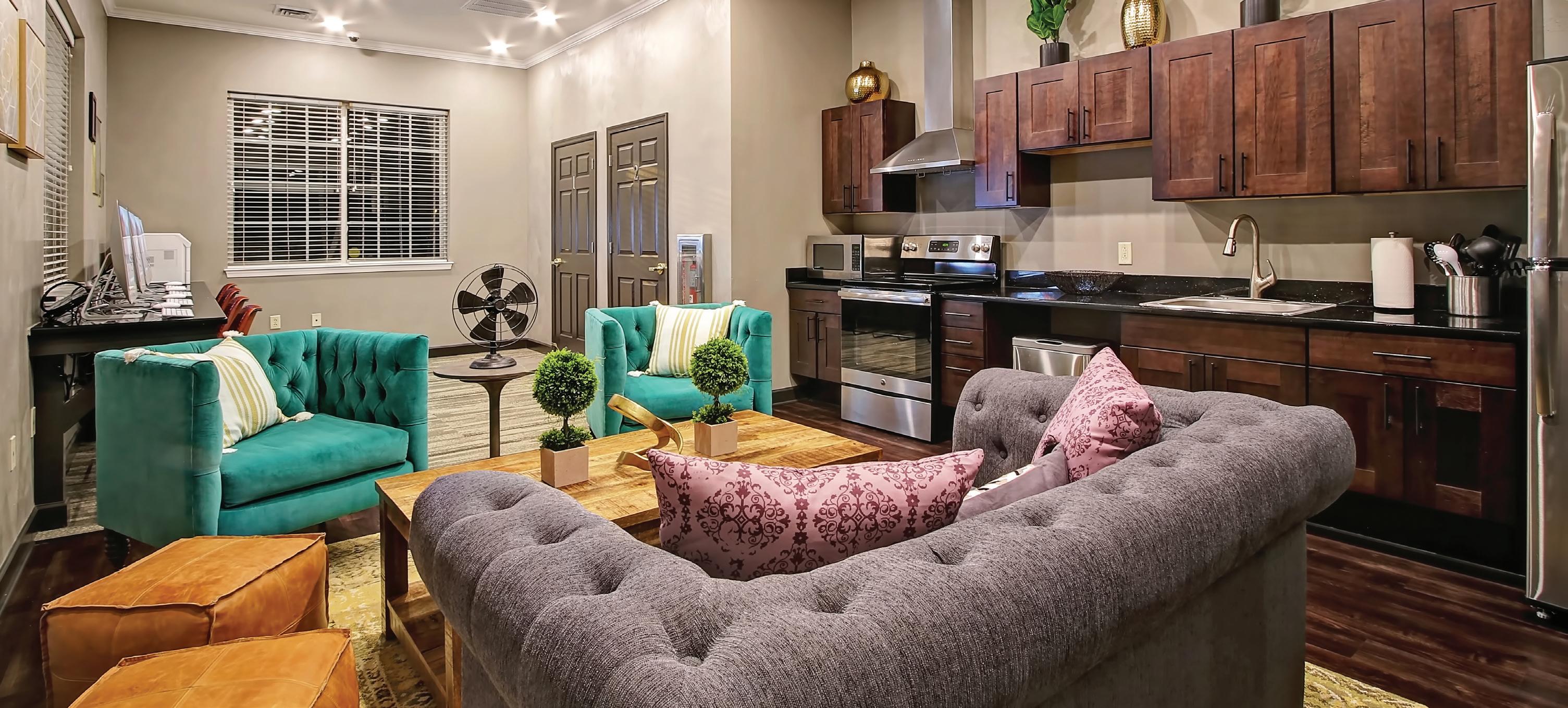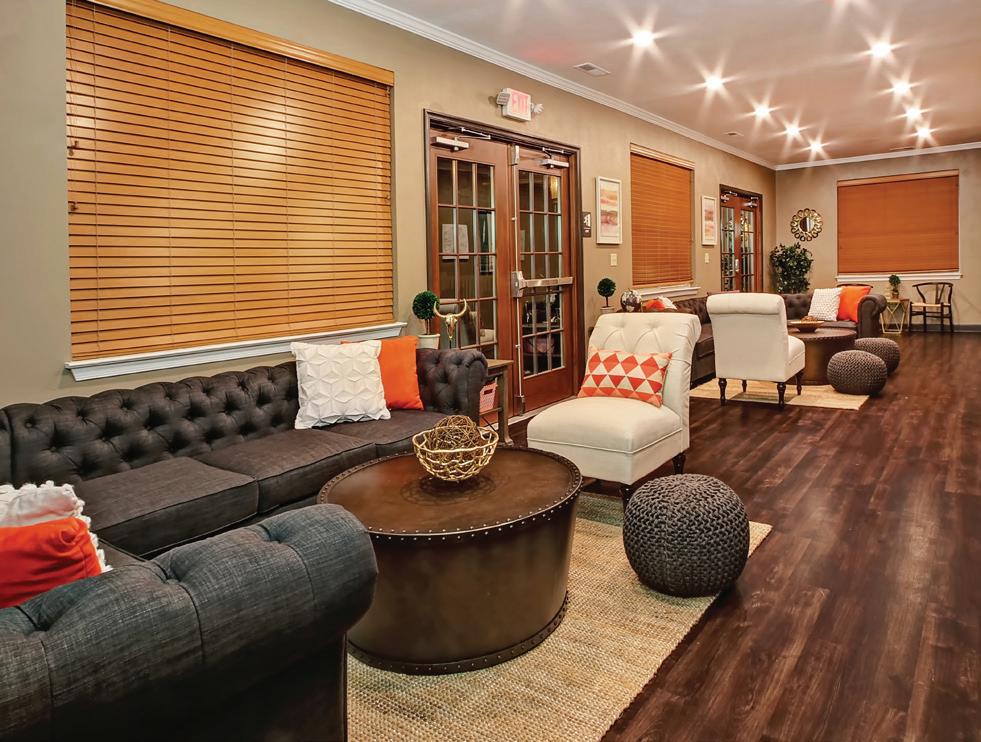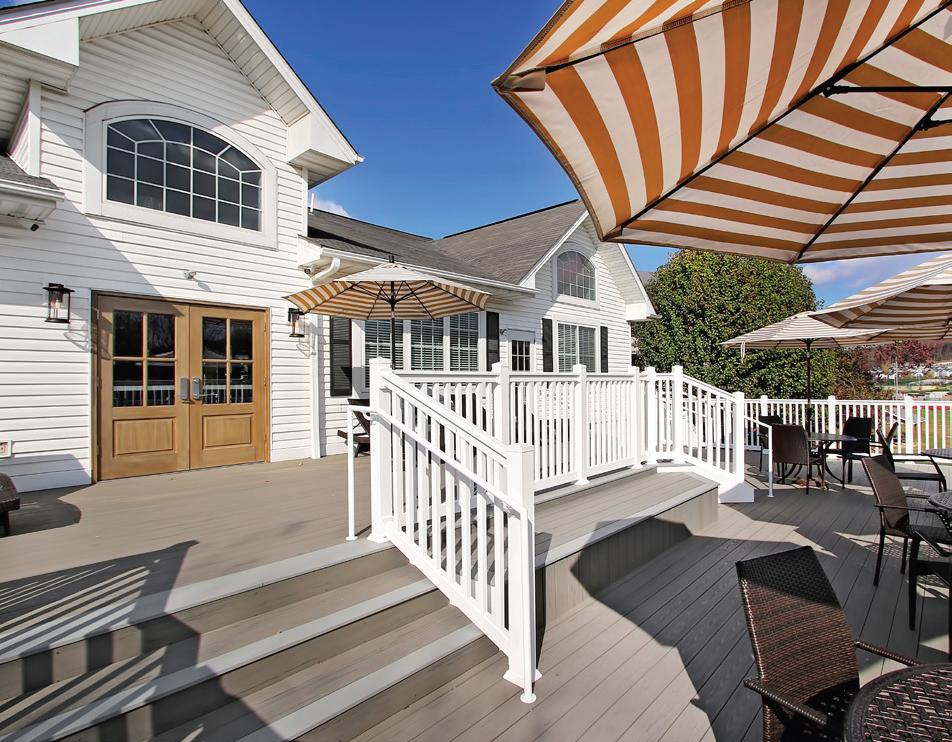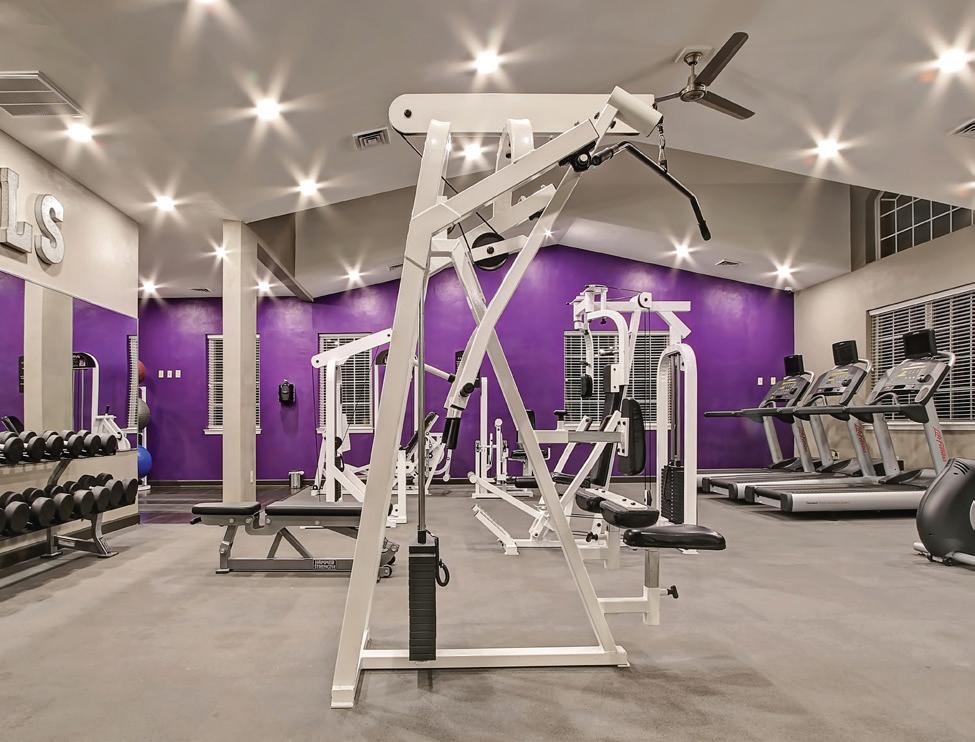The Breeze
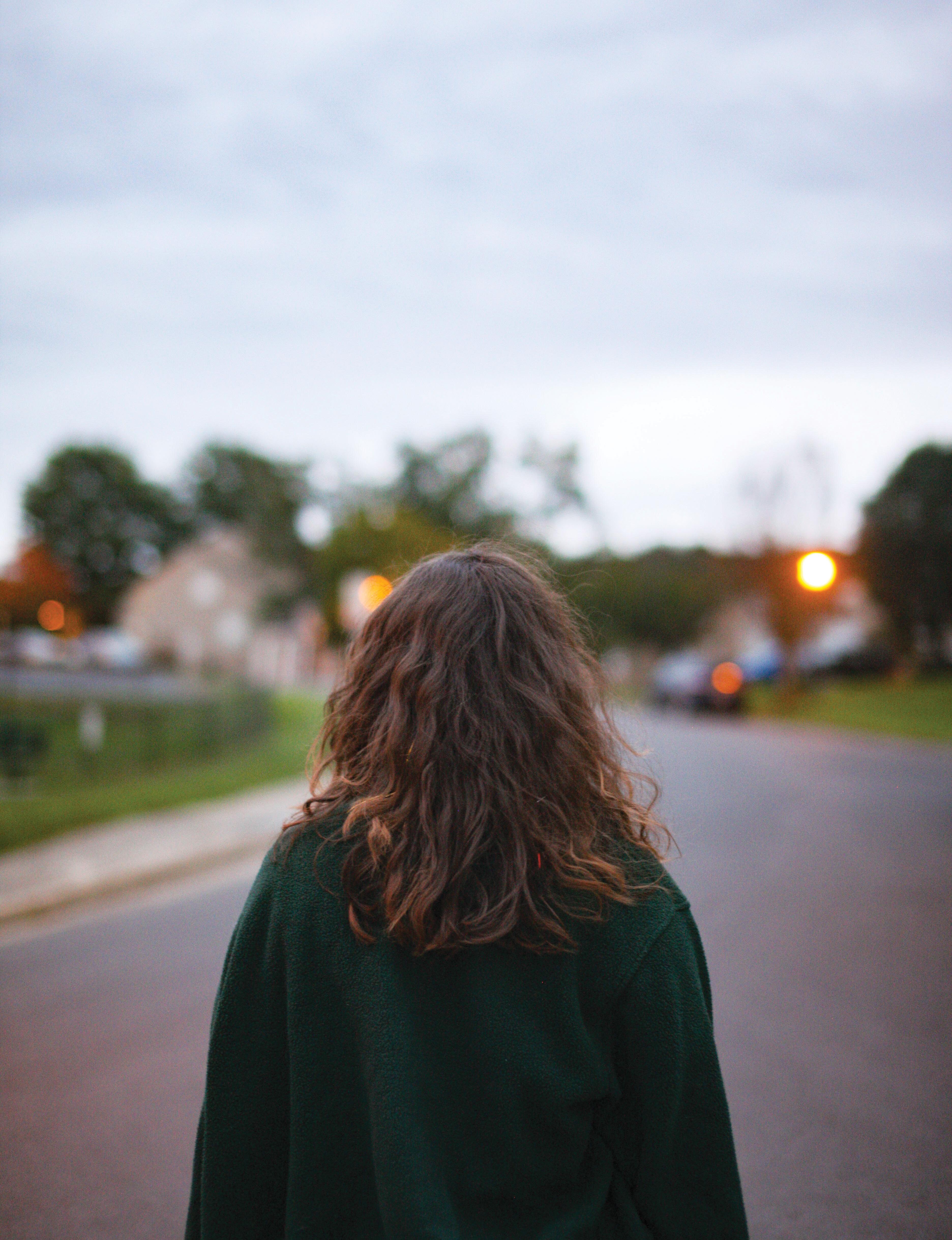
NOW THAT YOU’RE OFFICIALLY
CommonWealth One is JMU’s trusted, full-service credit union, and student banking is better here. We’re conveniently located on campus and offer everything you might need financially as a student. What we don’t have? Excessive and unnecessary fees.
When it comes to handling your finances as a student, we’ve got your back with:

Youth Savings Account Free Checking Account Online & Mobile Banking

Financial Resources Low-Rate Loans
The secret is out – CommonWealth One is here to help you thrive financially at JMU.
To open an account or learn more about JMU Student Perks, which include special events, free food and prizes, visit cofcu.org/JMU or stop by our branch in The Union (next to the post office)
The

The best place for banking isn’t a bank at all!
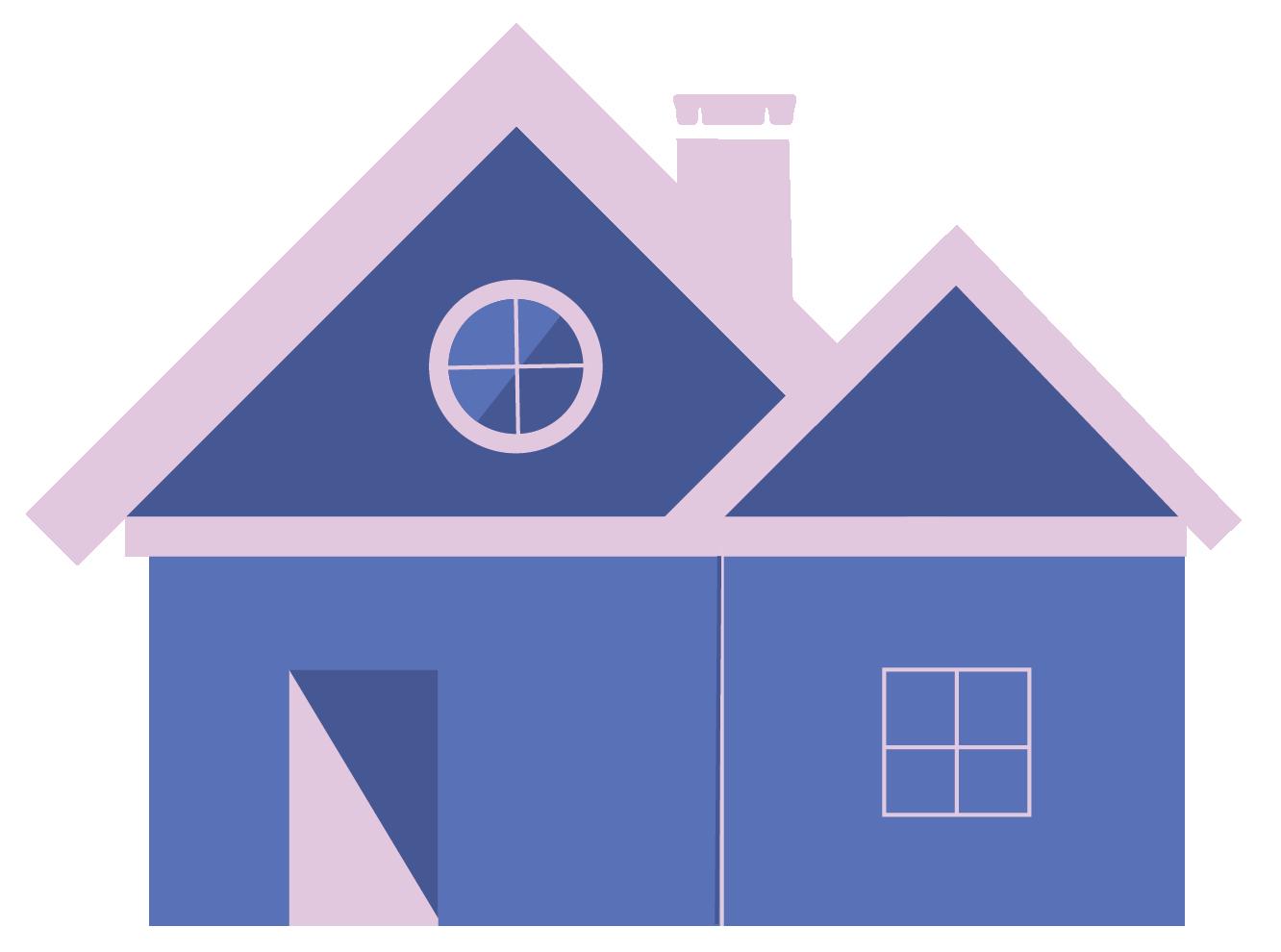
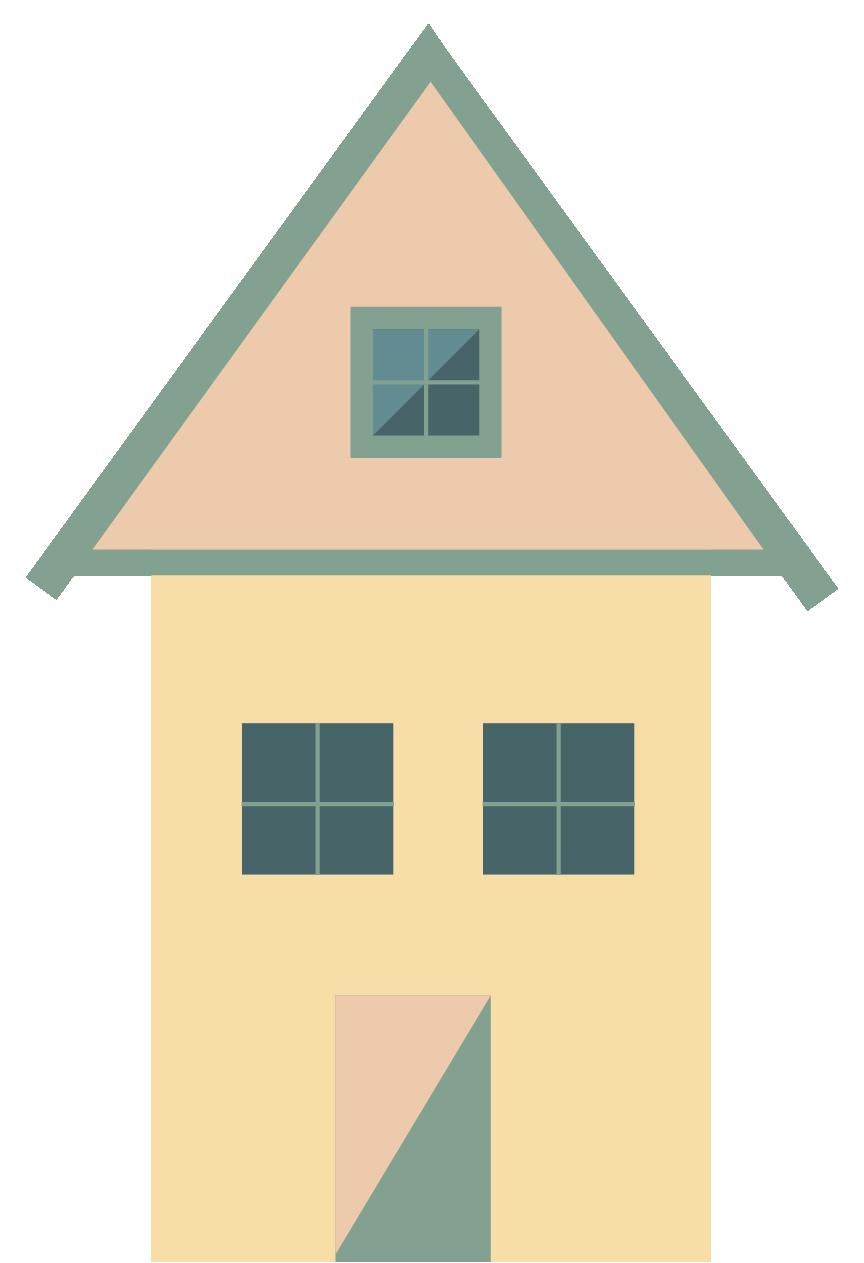

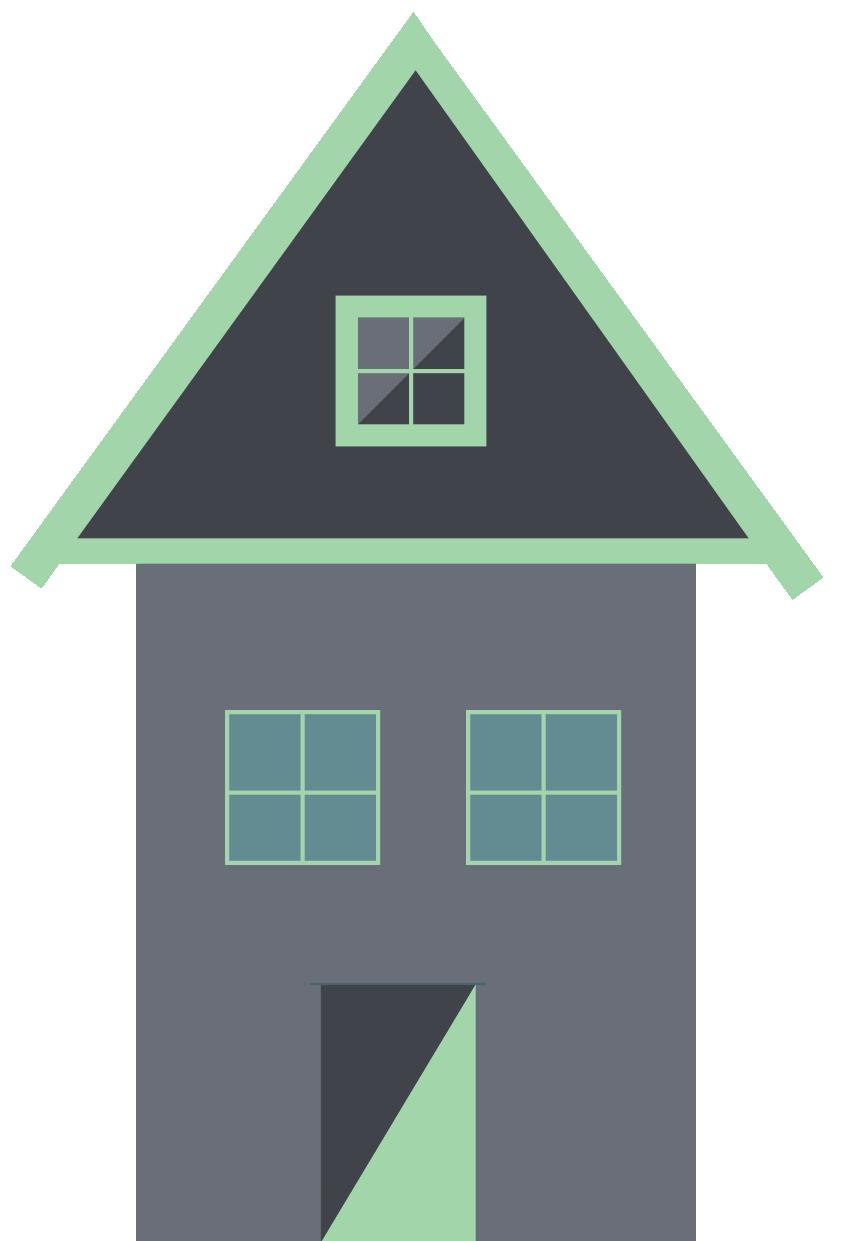
Find your new home
Off-campus housing explained
By ASHLEE THOMPSON contributing writerIt’s that time of year: Talk of off-campus housing applications and leases are beginning to roll through campus. Selecting offcampus housing can be overwhelming for students, especially given the numerous options Harrisonburg has to offer. The Breeze has summed up 17 different off-campus housing options and what they have to offer students.
Sunchase at James Madison
Sunchase offers two different styles of furnished fourbedroom and four-bathroom options for $570 to $585 per room. These units include private balconies, private bedrooms and bathrooms depending upon which style residents choose, an in-unit washer and dryer, high-speed Wi-Fi and internet, water utilities and more.
Along with the room amenities, Sunchase offers a 24-hour fitness center, coffee bar, large pool, grilling and fire-pit area, off-street parking and more, according to its website. The petfriendly apartments are less than one mile from JMU, and a 10-minute walk through JMU’s Edith J. Carrier Arboretum. For residents without a car, a Harrisonburg Department of Public Transportation (HDPT) bus stop is at this location.
Redpoint Harrisonburg (formerly The Retreat)
With rent ranging from $675 to $899 per room, Redpoint offers multiple furnished two-to five-bedroom options with anywhere from two and a half to five bathrooms. These units include a balcony, private bathrooms, walk-in closets and an in-unit laundry. Internet and water are included in the bill.
According to its website, the pet-friendly complex includes a 24-hour fitness center, a pool with cabanas and hammocks, grilling stations and fire pits, a disc golf course, billiards, study spaces and more. Redpoint is approximately two miles from JMU and has an HDPT bus stop.

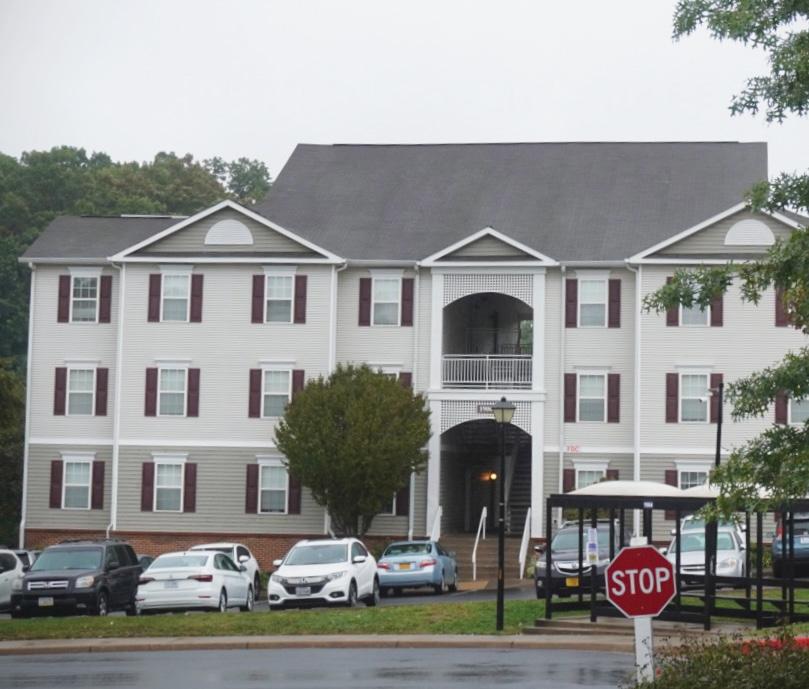
Altitude
Located approximately two miles from JMU, Altitude offers multiple one, two and four bedroom options ranging from $564 to $1,349 per room. These units include a full-sized washer and dryer, stainless steel appliances, a phone app-controlled unit entry, private bedrooms and bathrooms, utilities and more. Coming in 2023, units will also have private balconies.
Additionally, Altitude offers grocery delivery, Wi-Fi, a 24-Hour clubhouse and catering kitchen, a technology center with iMac computer stations, a rooftop deck and lounge, a fitness center and more, according to its website. This complex is also pet-friendly.
Arcadia Harrisonburg Apartments
Less than one mile from JMU, Arcadia offers two different styles of furnished four-bedroom and four-bathroom units ranging from $529 to $554 per room. These units include private bedrooms and bathrooms, modern appliances, fullsize washer and dryer, a newly renovated kitchen, a TV in the living room, walk-in closets in select units, utilities and more.
According to its website, Arcadia residents have access to an outdoor grilling area, free parking, a newly renovated clubhouse with a fitness center, a business center, coffee bar and more. Additionally, this complex is pet-friendly and has an HDPT bus stop.
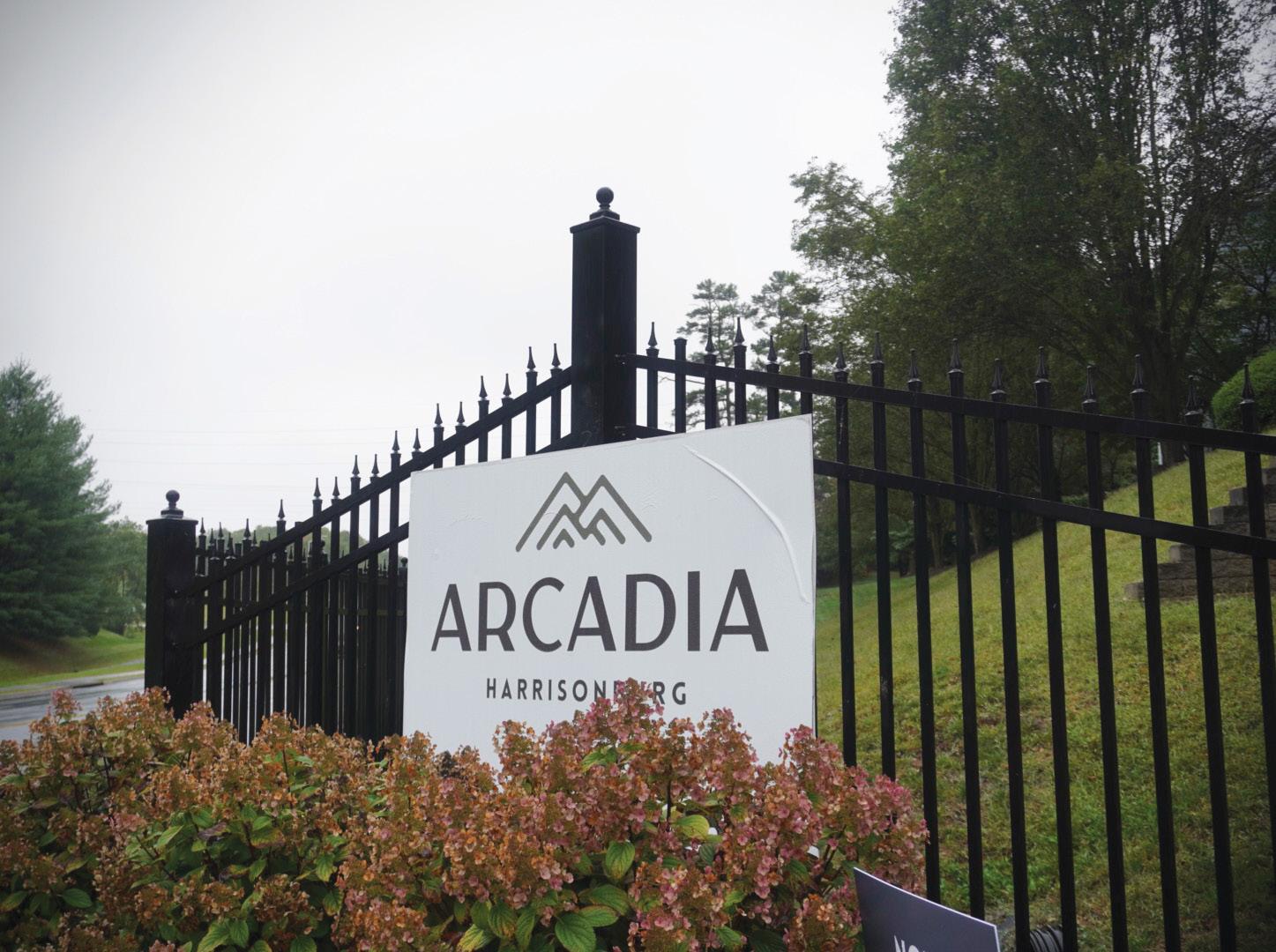
The Cottages on Port Republic (formerly Aspen Heights)
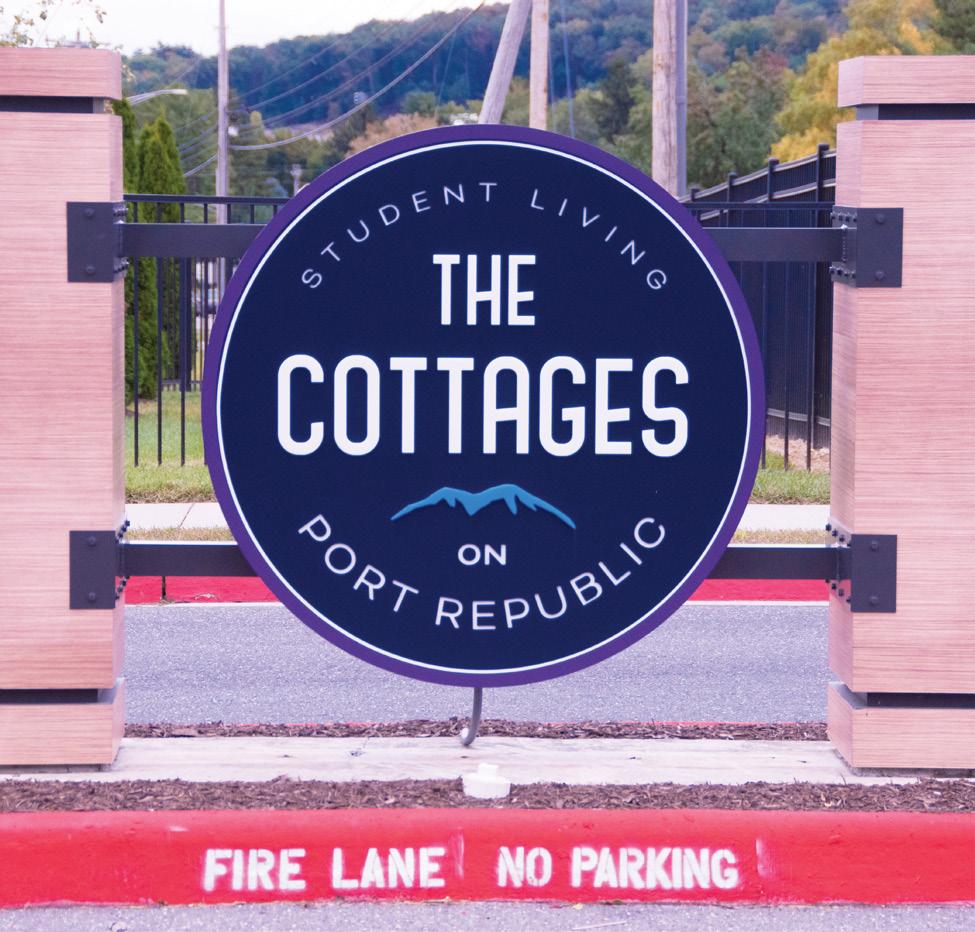
The Cottages offer furnished and unfurnished floor plans that range from two to five bedrooms costing anywhere from $775 to $830 per room. These units include walk-in closets, private bedrooms and bathrooms, full-sized washer and dryer, high-speed Wi-Fi, valet trash service, ceiling fans, balconies in select units and more. Depending on how many bedrooms, applicants can choose between two and a half and five and a half bathrooms.
According to its website, some amenities include a “resortstyle pool,” grill stations, a fitness center, private study rooms, a sand volleyball court, green space, package pickup with Amazon Hub and a movie theater, among others. The Cottages are pet-friendly and are located approximately 1.4 miles from JMU. There’s an HDPT bus stop at this location.
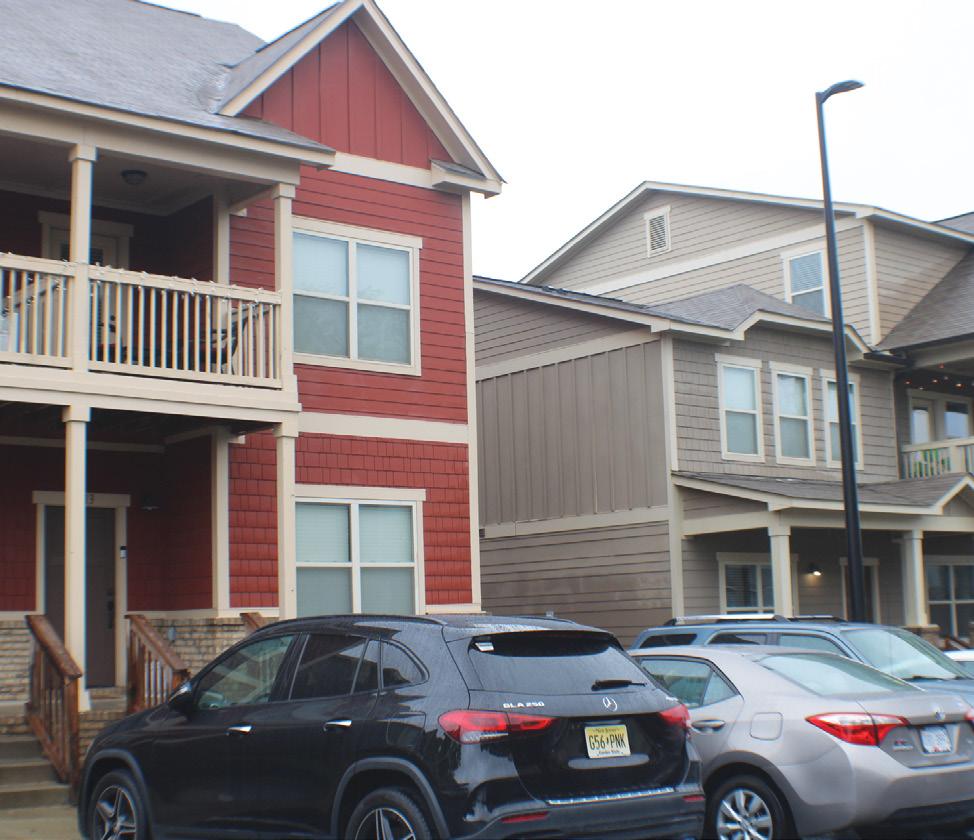
The Harrison
With rent ranging from $399 to $724 per bedroom, The Harrison offers multiple furnished two-and four-bedroom floor plans. According to its website, apartments include bedrooms with private locks, a fully equipped kitchen, a fullsized washer and dryer, a private balcony, utilities and more. Other amenities offered are a pool, a 24-hour fitness center, a yoga studio, broadband internet, a coffee bar with a 24-hour Starbucks cafe machine and more. This complex is also petfriendly. The Harrison is approximately 1.2 miles from JMU and has an HDPT bus stop.

Hunters Ridge Condominiums
Hunters Ridge offers multiple furnished and unfurnished floor plans ranging from two to five bedrooms. The units include a washer and dryer, a balcony and patio, an open living area, a kitchen and a dining room with rent ranging from $405 to $625 per room. Utilities are included.
On-site amenities include a picnic and grill area, basketball court, trash removal and on-site parking, according to its website. This pet-friendly complex is less than a mile from JMU and has an HDPT bus stop.
Copper Beech
Less than two miles from JMU, Copper Beech offers multiple furnished and unfurnished one-to four-bedroom floor plans ranging from $620 to $955 per room. These units include Internet, a full-sized washer and dryer, a clubhouse kitchenette, and a private bedroom and bathroom, Some utilities are included.
According to its website, other amenities on-site include a fitness center, pools, volleyball and basketball courts and more. Additionally, Campus View is pet-friendly and has an HDPT stop.
Urban Exchange
Urban Exchange offers multiple one-to three-bedroom options for a rent of $910 to $1,755. This complex also gives residents the chance to rent a queen bed. These units include stainless steel appliances, internet, washer and dryer and utilities.
Also offered are on-site parking, an iPhone video entry system, a gym and an interior bike storage located in the parking garage, according to its website. This pet-friendly complex is less than one mile from JMU. There are HDPT bus stops near this location.
North 38 Apartments
Located approximately 2.4 miles from JMU, North 38 offers multiple furnished three-and four-bedroom units with rent ranging from $569 to $675 per room. Rooms include a fullsized kitchen, full sized washer and dryer, and a 55” smart TV. Utilities are included.
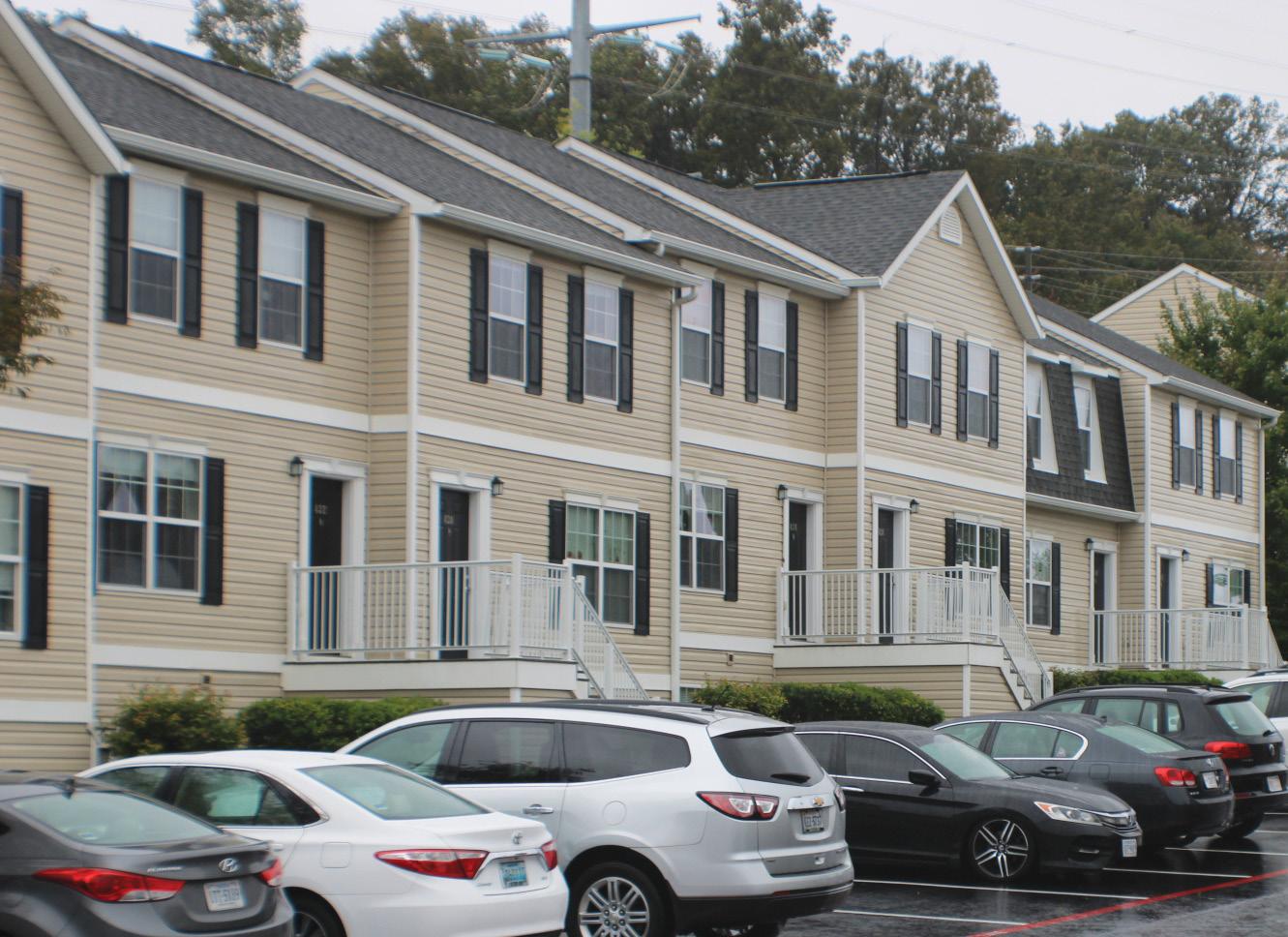
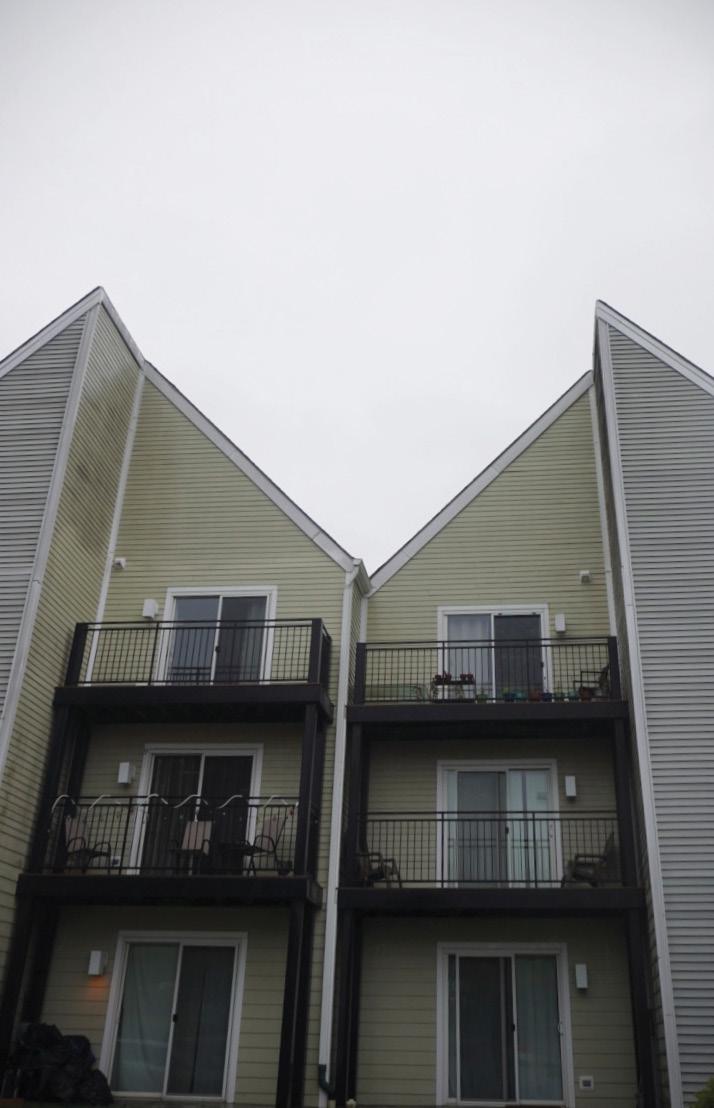
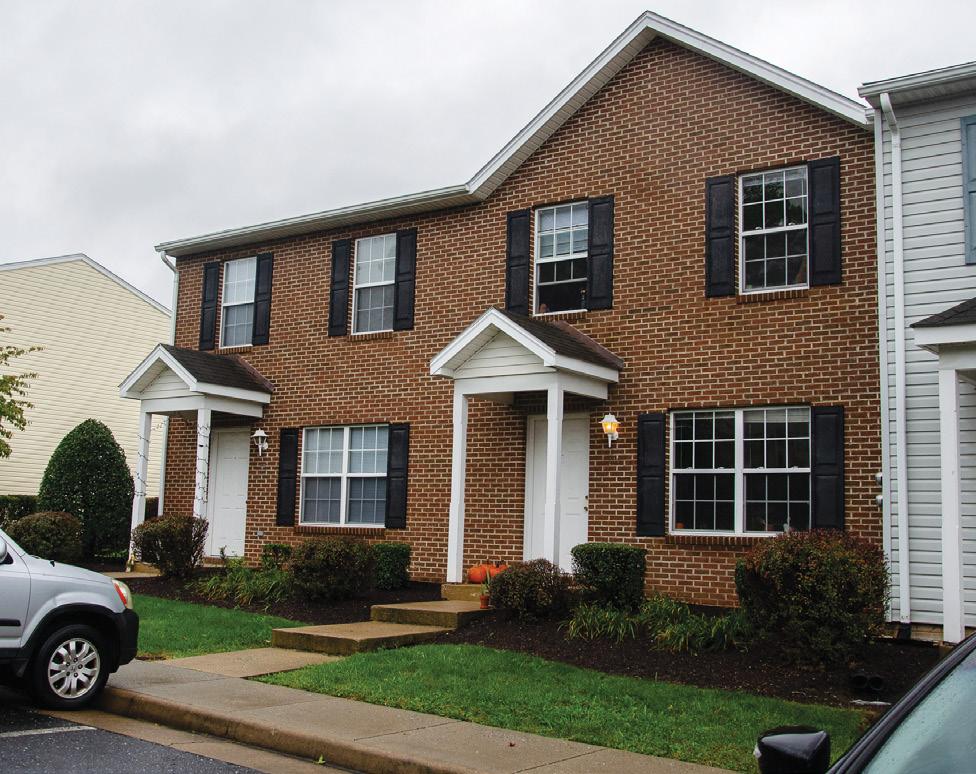
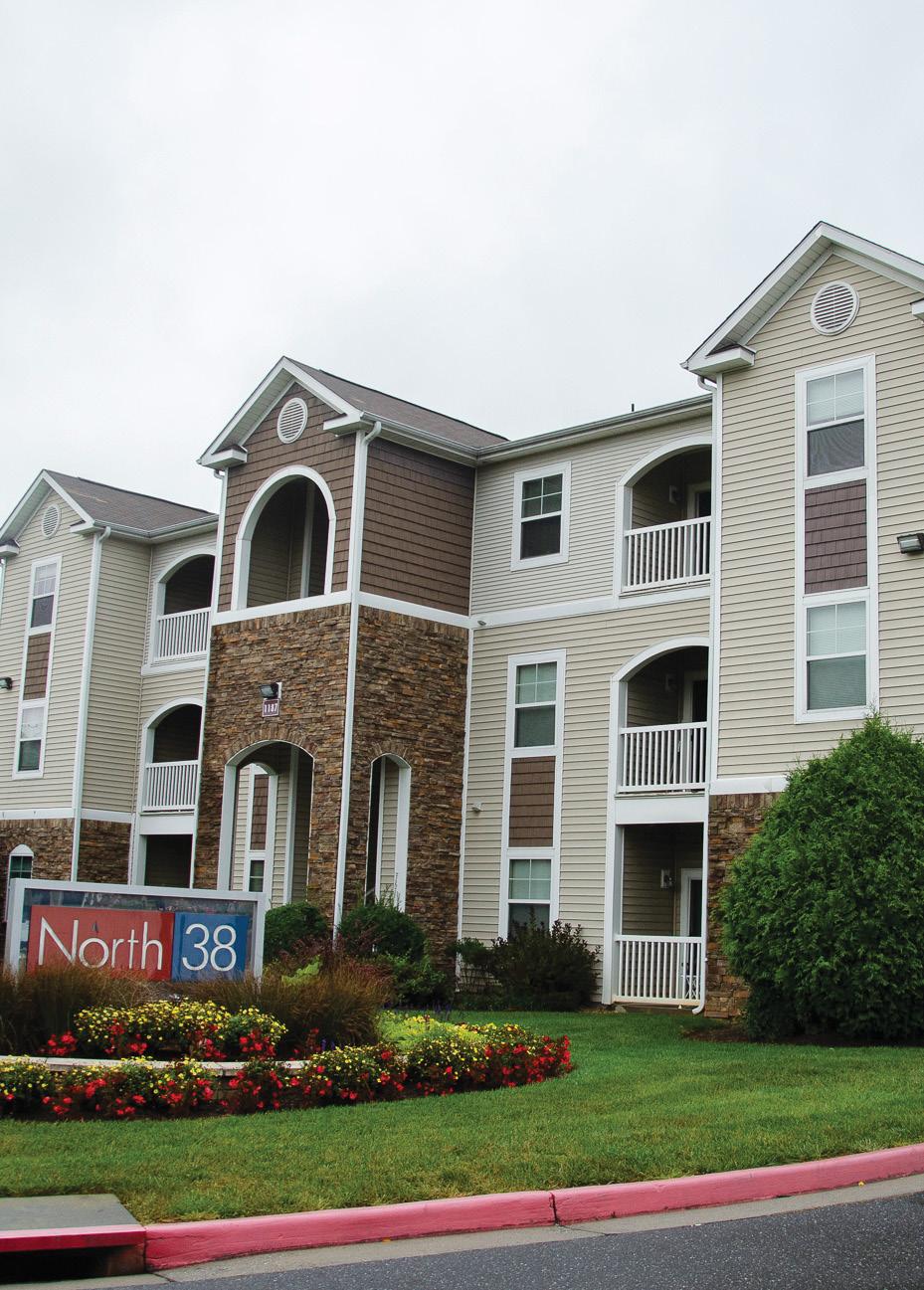
According to its website, North 38 includes a computer lounge, a volleyball court, two dog parks, a community car wash, two grill areas with fire pits, valet trash service, a gym, a mind and body room and a hot tub. Additionally, North 38 is pet-friendly and offers a private shuttle for residents.
The Hills of Harrisonburg
The Hills offers furnished four bedroom units with a choice of two or four bathrooms. Rent is $474 per room and includes utilities. These units include an in-unit laundry, a full kitchen, walk-in closets, balconies and ceiling fans.
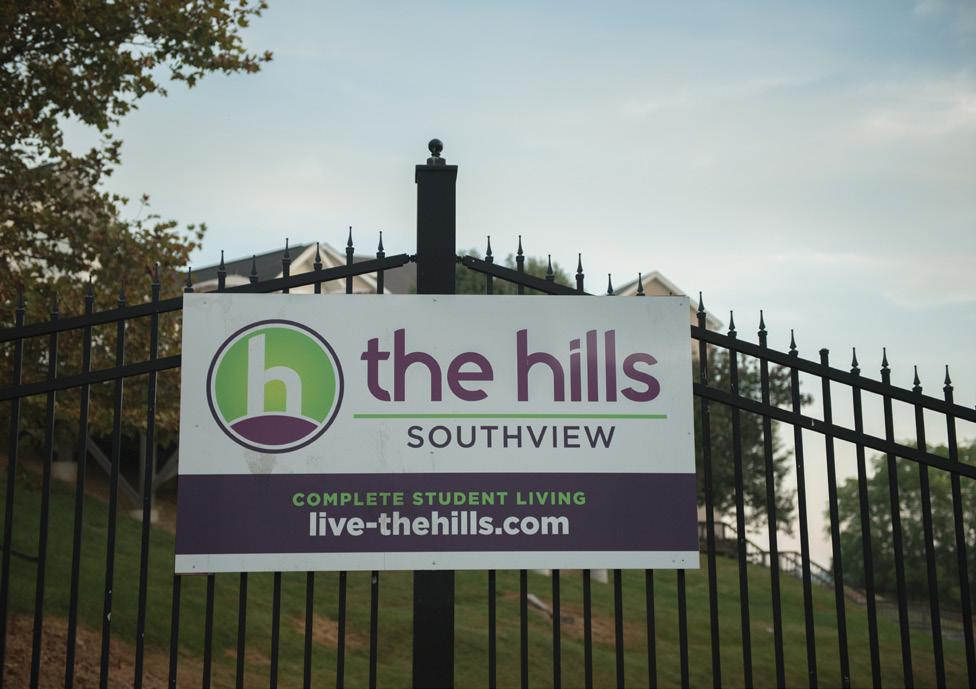
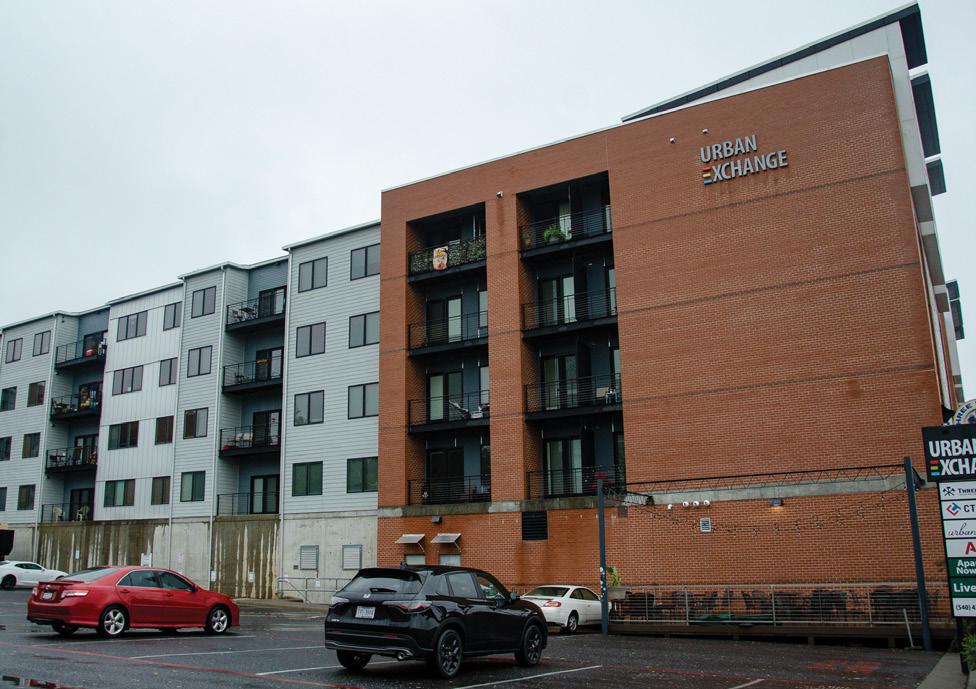
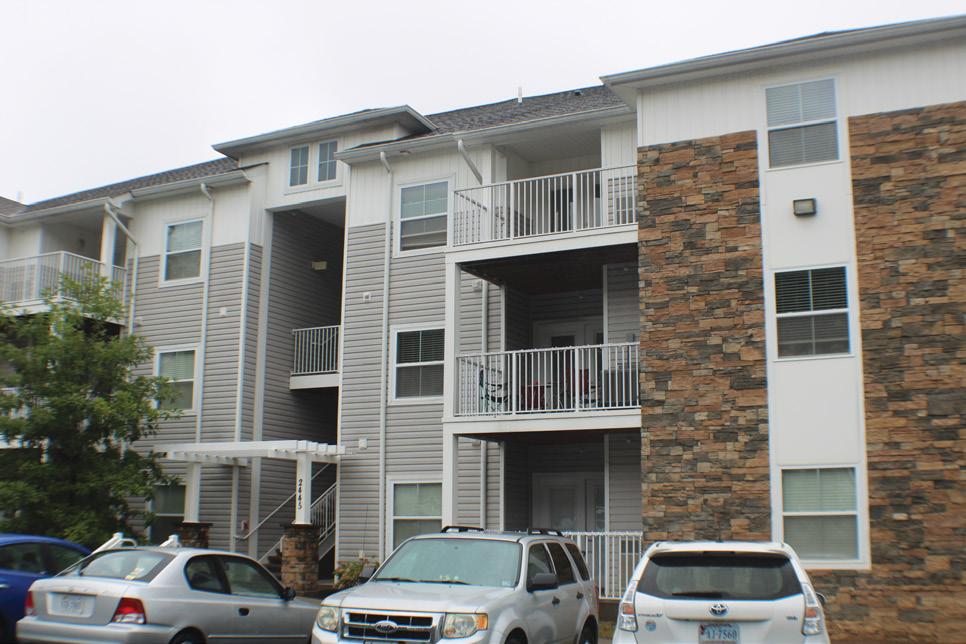
According to its website, other amenities include a 24-hour fitness center, a study center, a coffee bar, basketball and volleyball courts, gaming lounges and parking. Additionally, this complex is pet-friendly. The Hills is 1.2 miles away from campus and has an HDPT bus stop.
Charleston Townes
Charleston Townes units have four bedrooms and four and-a half-bathrooms. This complex offers furniture sets — a queen-sized bed, nightstand, desk, dresser, table and coffee table set, an oversized chair, couch and entertainment stand — available to buy. The rent per room is $615, and the rooms have an in-unit washer and dryer, stainless steel appliances, and a wall-mounted flat screen TV.
Other amenities are a water fountain pool, a sun deck, basketball and volleyball courts, a gym and internet, according to its website. Additionally, this complex is pet-friendly. Charleston Townes is 1.5 miles from campus and has an HDPT bus stop.
Campus View
Campus View offers two styles of rooms — both four bedroom and four bathroom, but with different kitchen layouts. Costing $529 per room, units at Campus View include large closets, a private deck and balcony, an in-unit washer/ dryer, individual bedroom locks and Internet. Additionally, utilities are included.
According to the Campus View website, other amenities offered are a hammock lounge, bike racks, two clubhouses, a pool, two fitness centers and basketball and volleyball courts. Campus View is pet-friendly and is located approximately 1.4 miles from JMU. There’s an HDPT stop at this location.
Pheasant Run Townhomes
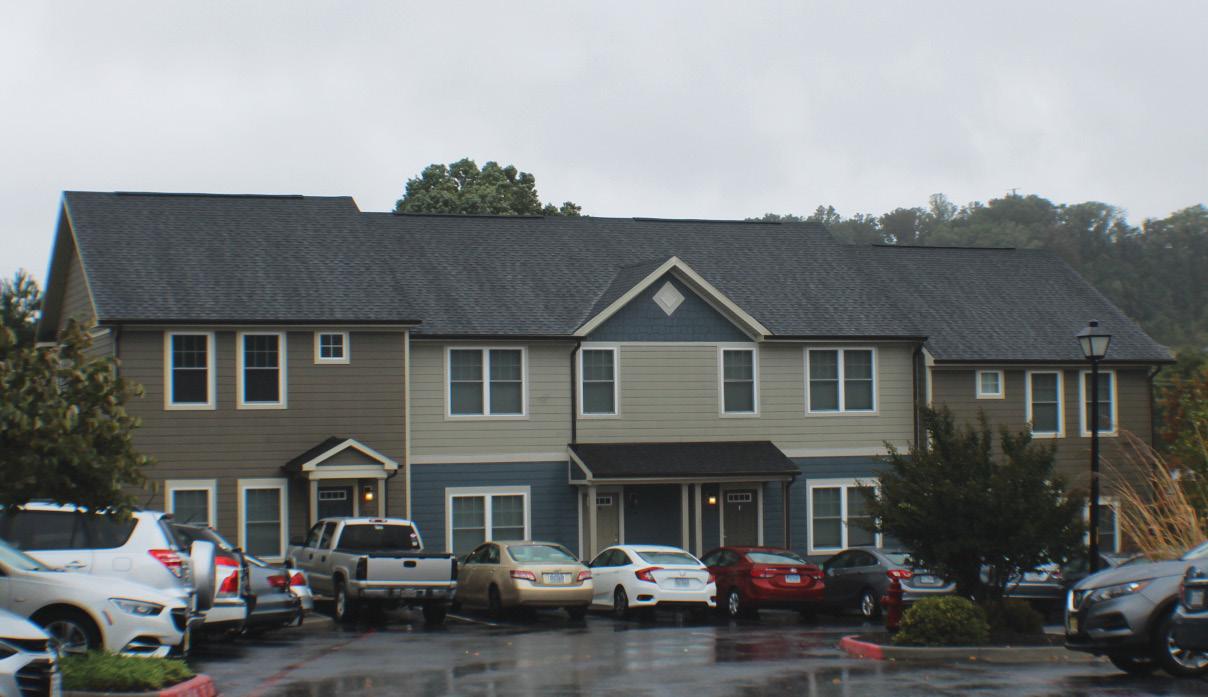
Pheasant Run offers a furnished four-bedroom and two-anda-half bathroom unit. Rent starts at $435 per room, with rooms including large closets, a private patio, a washer and dryer and individual climate control. Additionally, utilities are included.
The spacious townhomes are pet-friendly and include basketball and volleyball courts and high-speed internet, according to its website. Pheasant Run is approximately one mile from campus and has an HDPT bus stop.
Squire Hill Apartments
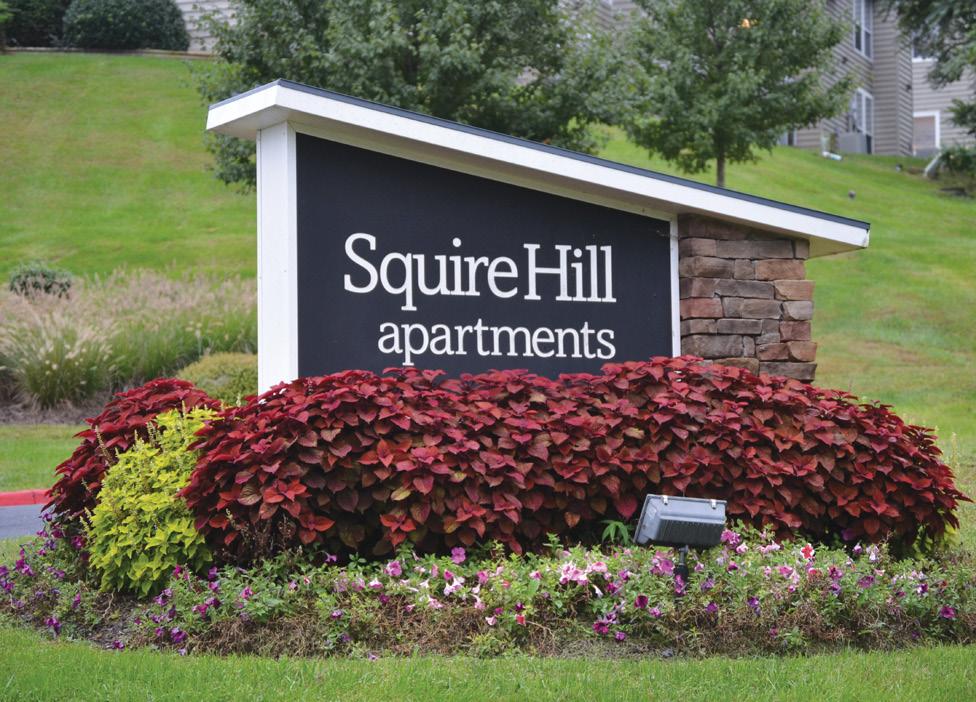
Squire Hill offers multiple furnished units ranging from two to three bedrooms. For one bedroom, this complex offers furniture rentals. Rent ranges from $549 to $1,199 per room. Units at Squire Hill include large closets, a washer and dryer, ceiling fans, cable and high-speed internet and a kitchen with an island in select units.
On-site amenities include a 24-hour clubhouse with free Wi-Fi, one assigned parking space per bedroom, a dog park, a pool and a hot tub, according to its website. Squire Hill is less than one mile from JMU.
The Mill Apartments
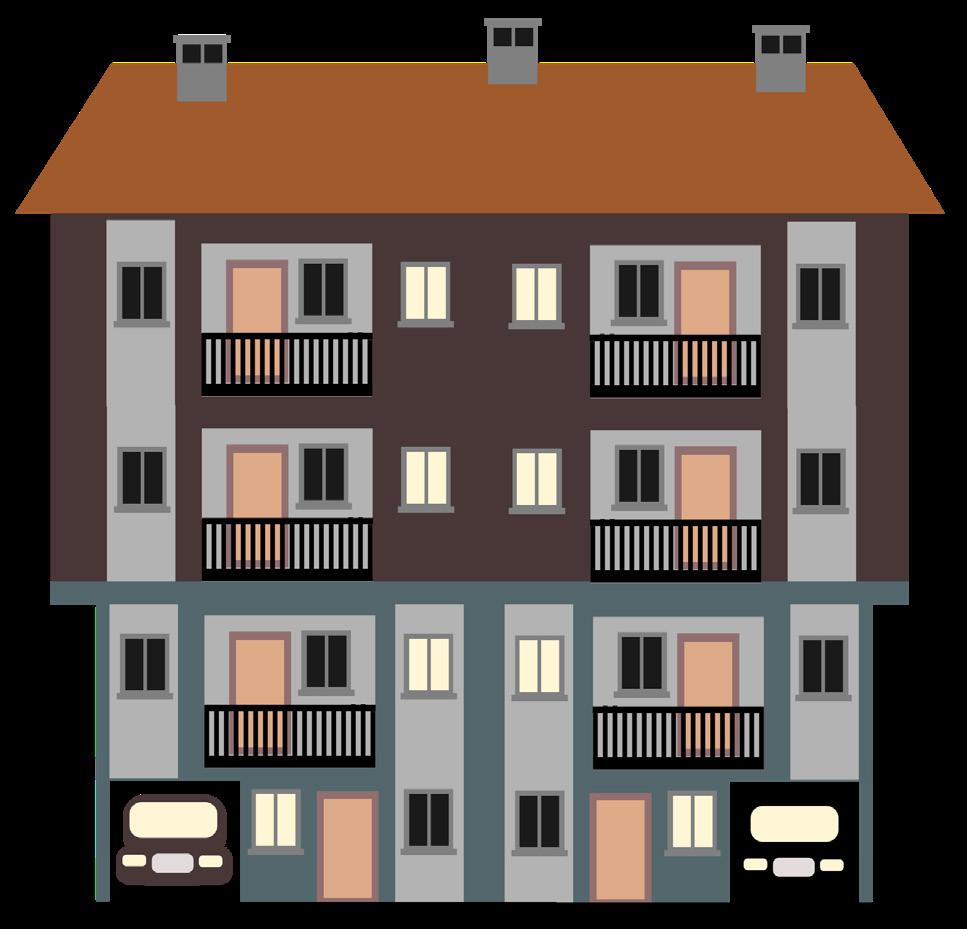
The Mill offers a furnished four-bedroom and two-bathroom unit with rent starting at $449 per room with utilities included. These units include a washer and dryer, Xfinity HD cable with over 100 channels, and stain-resistant carpeting in the living room and bedrooms.
According to its website, other amenities include a petfriendly environment, an outdoor entertainment area and free parking. The Mill is approximately half a mile from JMU, and there are two HDPT bus stops at this location.
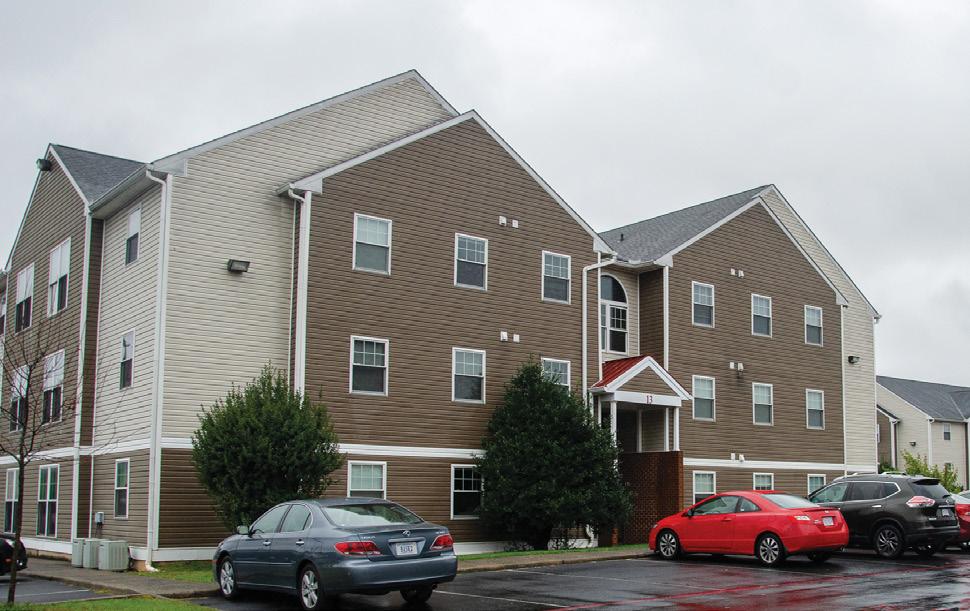

Foxhill Townhomes
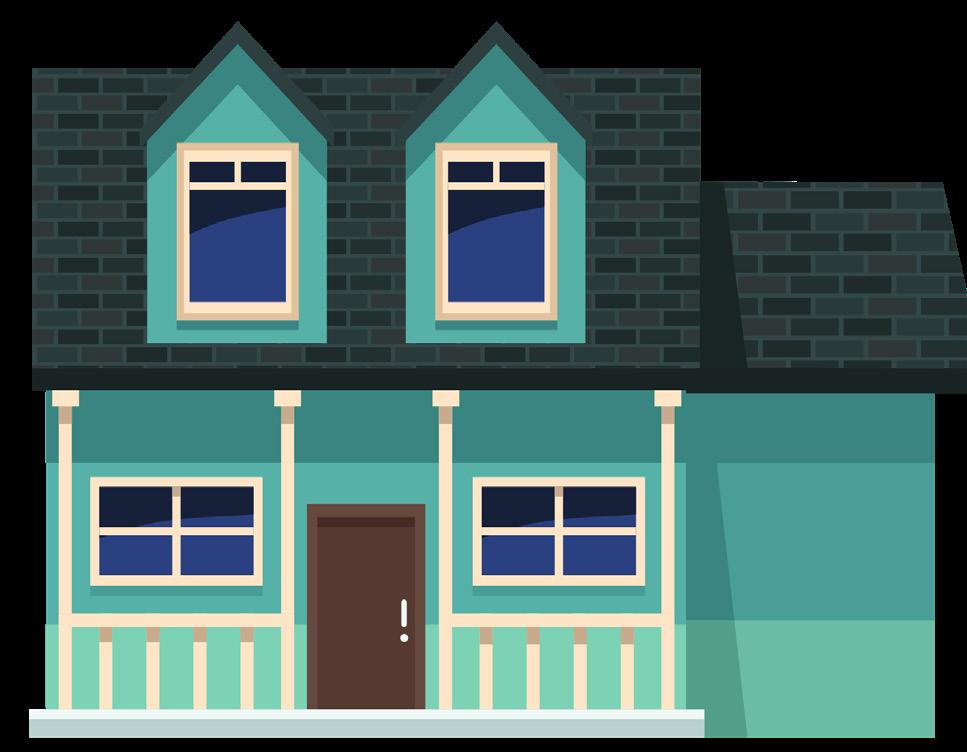
Foxhill Townhomes offers residents a furnished two-story townhome with four bedrooms and 2 bathrooms. Rent starts at $484, and rooms include a full-size washer and dryer, large closets and an updated kitchen. Fox Hill includes utilities and is pet-friendly.
According to its website, on-site amenities include tanning booths, a picnic area with grills, parking and a renovated clubhouse with fitness center. Foxhill is less than one mile from JMU.
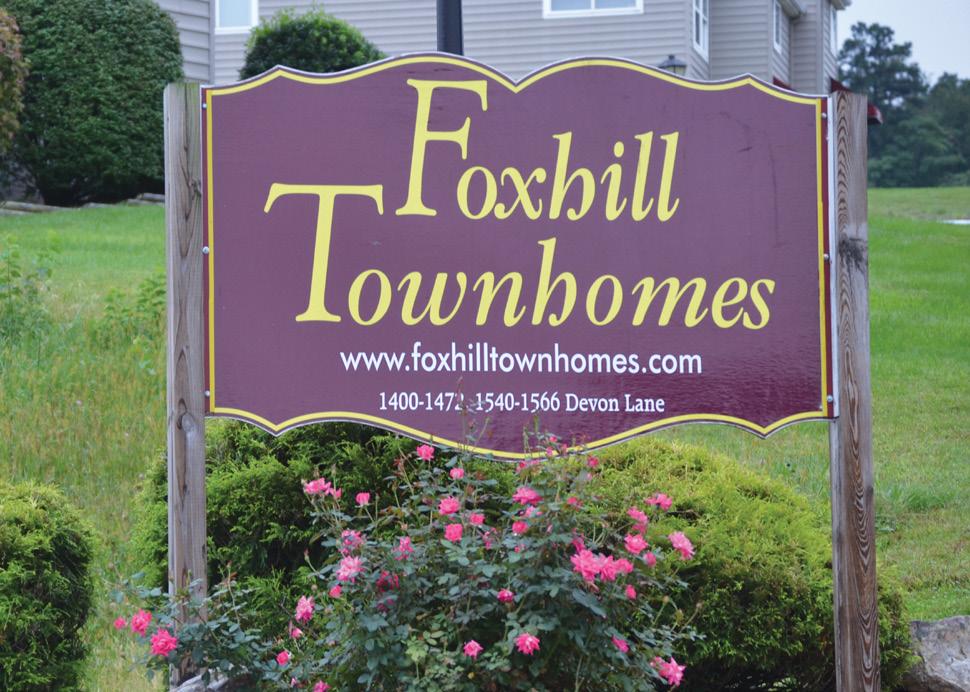


When most students move off campus, it’s an exciting and new adventure. However, many students are plagued with the responsibility of furnishing their apartments.
This burden leaves some without furniture for weeks or months into the semester. Many don’t have the time or resources to buy brand new pieces for their homes. While some students go directly to a furniture store, that may not be the best option for everyone. Here are some cheaper places to look for your next home or apartment furniture purchase.
Buy Nothing
A Facebook group called Buy Nothing has made its way to Harrisonburg in the past few years. Anyone can apply to join from their respective locations, and whoever joins can buy and sell furniture at low prices. Most of the time, buyers are simply asked to pick up the item they’re purchasing. There are two groups for Harrisonburg — East and West — depending on which part of town you reside in. Here, students can buy secondhand items and contribute to their community.

Mercy House
Harrisonburg’s filled with thrift stores. Most students go to
Furniture finds
Five local places with cheap ways to furnish off-campus housing
them for fashion and secondhand apparel, but there are secret furniture finds — if you know where to look. At Mercy House, a nonprofit organization that helps the homeless in a variety of ways, you can find men’s, women’s and children’s clothing, but the main find at Mercy House is its selection of good quality secondhand furniture. Not only can you get all your thrifting needs done here, you can also feel good about giving back to the community.
Goodwill
Additionally, Harrisonburg’s home to Goodwill locations on both sides of town. Goodwill, throughout the U.S., has helped communities as a secondhand store; here, people can donate and buy conveniently. The biggest downside of these stores is that since they’re so popular, you may have a harder time finding exactly what you’re looking for. While you may not find quite what you need at Goodwill, you’ll find yourself leaving with something you didn’t know you needed, making it another great option for secondhand items.
Gift and Thrift
Gift and Thrift is a bit farther away from campus and closer to Eastern Mennonite University (EMU), but it’s worth it. The price point’s slightly higher but still affordable, as all items are donated. Here, you can find everything in an organized manner, compared
$699 $699CHICKEN SANDWICH™ COMBO

to other thrift stores; the staff here will always welcome you and help with whatever you need.
Gabe’s
If secondhand items aren’t your thing and you want something new, Gabe’s is a great option. Unlike thrift stores, Gabe’s has an established stock of items. Since furniture here is new and unused, expect to pay a bit more. The biggest benefit of a department store like Gabe’s, though, is you’re almost guaranteed to find something you’re looking for.
Although it can be difficult to furnish a living space, it isn’t completely unmanageable. These options are affordable and accessible to students. Be sure that when looking for off-campus housing, you note whether the locations you’re interested in are furnished.
While it may seem easiest to order a sofa or table on Amazon or something similar, buying secondhand gives directly back to your community. Affordable furniture is a stressor you shouldn’t have to worry about — so stave off those worries by thrifting your next items.
CONTACT Abigail Elia at eliaat@dukes.jmu.edu. For more on the culture, arts and lifestyle of the JMU and Harrisonburg communities, follow the culture desk on Twitter and Instagram @Breeze_Culture.
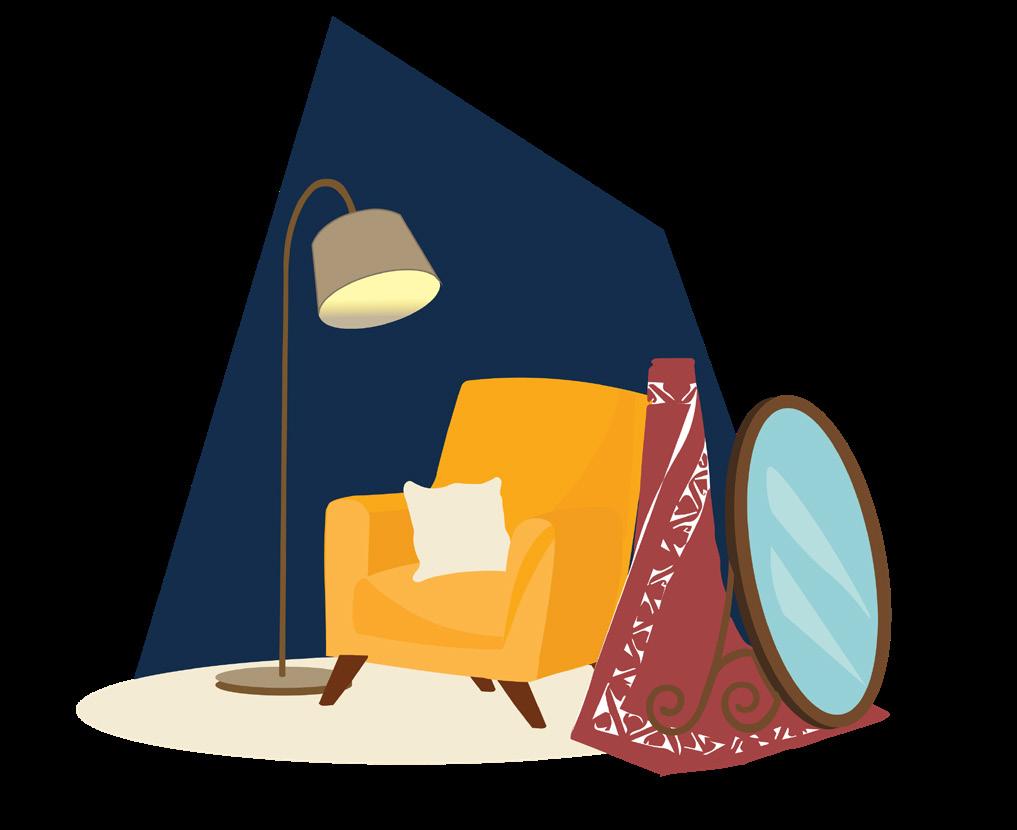
Students

first
campus
 ABBY MELLO | contributing columnist
ABBY MELLO | contributing columnist
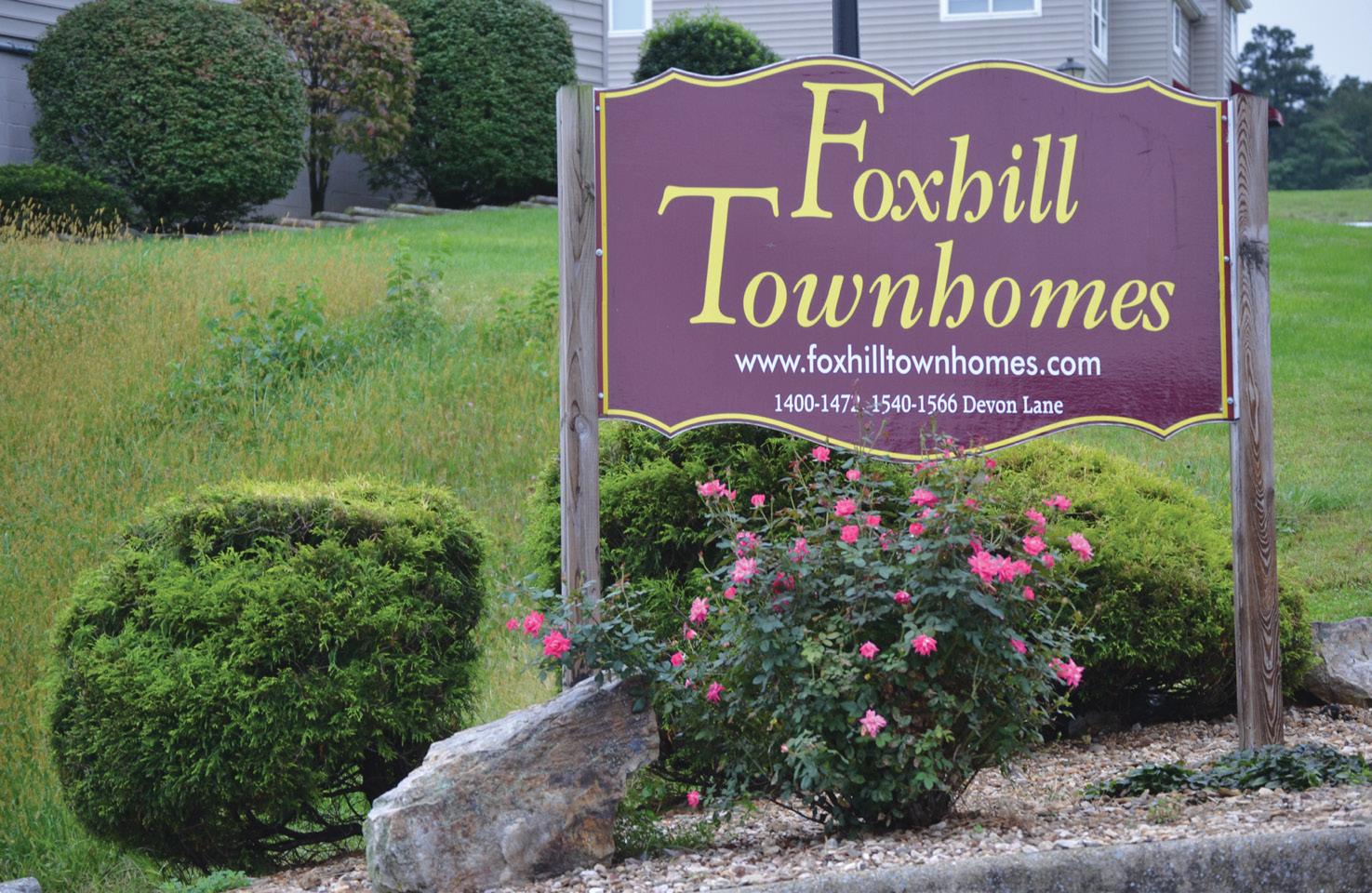
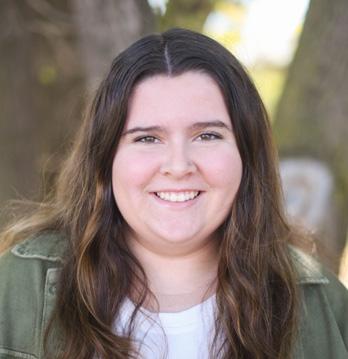

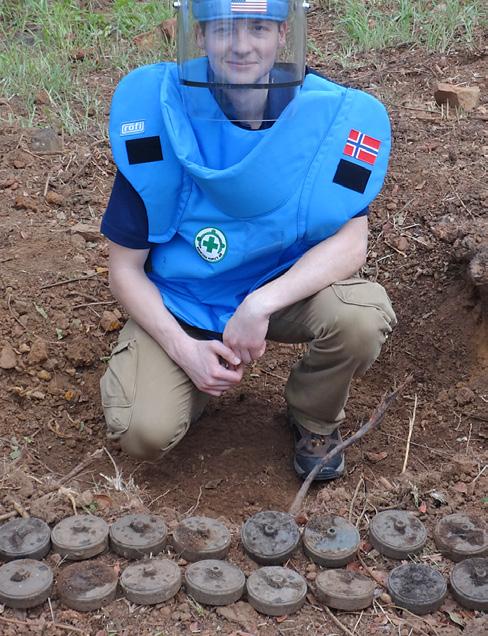
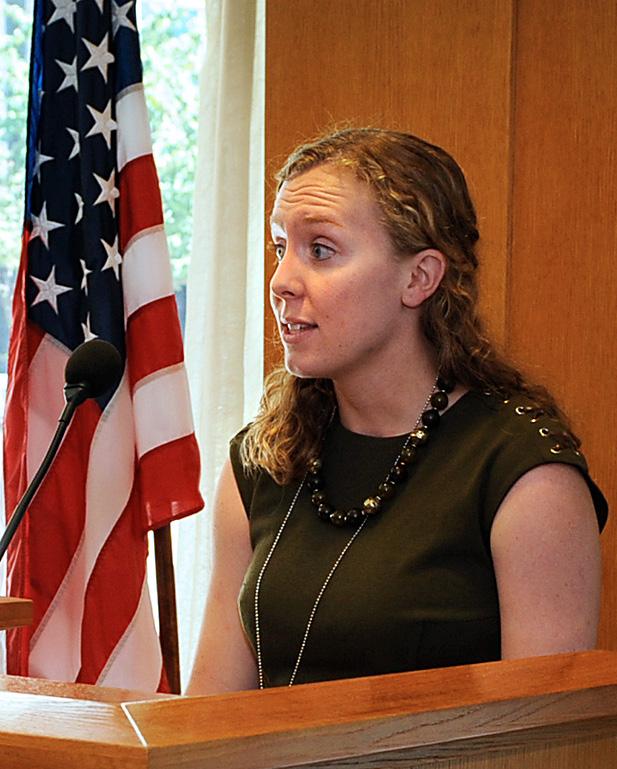

Most college students enter their freshman year excited for a taste of real freedom, but the real freedom comes later, when they move off campus. Harrisonburg offers an abundance of living options, from apartments and townhomes to houses downtown, and each place comes with its own set of perks. The endless options for off-campus living can be overwhelming, but with JMU’s close community and
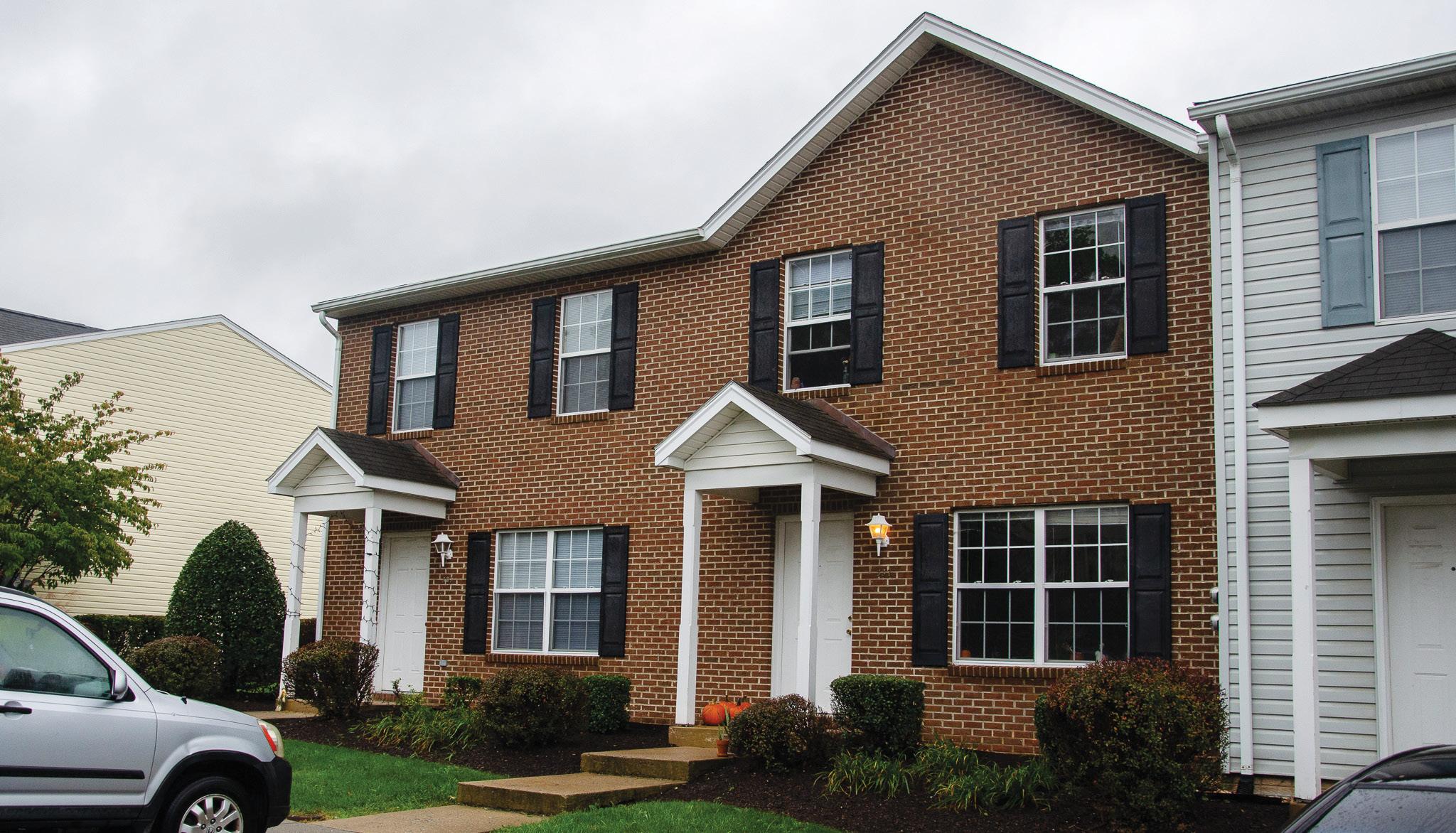
Harrisonburg’s free transportation, you’re not bound to just one area.
It’s important for students to have an off-campus experience. According to The New York Times, most students in the U.S. live off campus: about 87%. One reason may be that living on campus is sometimes more expensive; however, regardless of why the move happens, stepping away from dorm life is one of the best choices students can make.
Students are sometimes hesitant to move out of the dorms because they don’t want to lose the benefit of having all their friends one door away. Though, when you move off campus at JMU, that doesn’t necessarily happen. Every neighborhood in Harrisonburg has something unique about it, but there are many student neighborhoods.
Many sports, clubs, sororities and both professional and social fraternities facilitate events at members’ off-campus housing. With boundless ways to become

a member of these organizations, living off campus can help students become more connected.
Most JMU students are probably no stranger to Devon Lane. This off-campus neighborhood is a desired spot for many students. Though there are more updated living options elsewhere in Harrisonburg, the energy is high and the people are fun.
Regardless of where you go, living on your own for the first time can be frightening and challenging, but making that first step is crucial for every student.
Sophomore Mia Cvijanovic moved into Campus View at the begining of this semester.
“When I stepped out [on my own] the independence was refreshing,” Cvijanovic said. “Once I fully got adjusted, it was really rewarding and I’ve loved seeing myself grow these last two months.”
Harrisonburg is full of enjoyable opportunities, and they’re easier to access when you’re not confined to campus. Downtown Harrisonburg has great restaurant options and fun places to
shop. The city’s also full of great hikes and beautiful spots to watch the sunset.
To students who are hesitant to move off campus, living among peers from different years and different organizations and activities allows you to grow and expand your interests
CONTACT Abby Mello at melloal@ dukes.jmu.edu. For more editorials regarding the JMU and Harrisonburg communities, follow the opinion desk on Instagram and Twitter @Breeze_Opinion.
Dukes discuss moving from dorm life to off-campus housing A big transition
By MORGAN BLAIR contributing writerA new school year brings a number of new and old challenges for students — one being the transition from living in a dorm to living in an apartment.
While the transition can be difficult, many students seem to prefer living off campus.
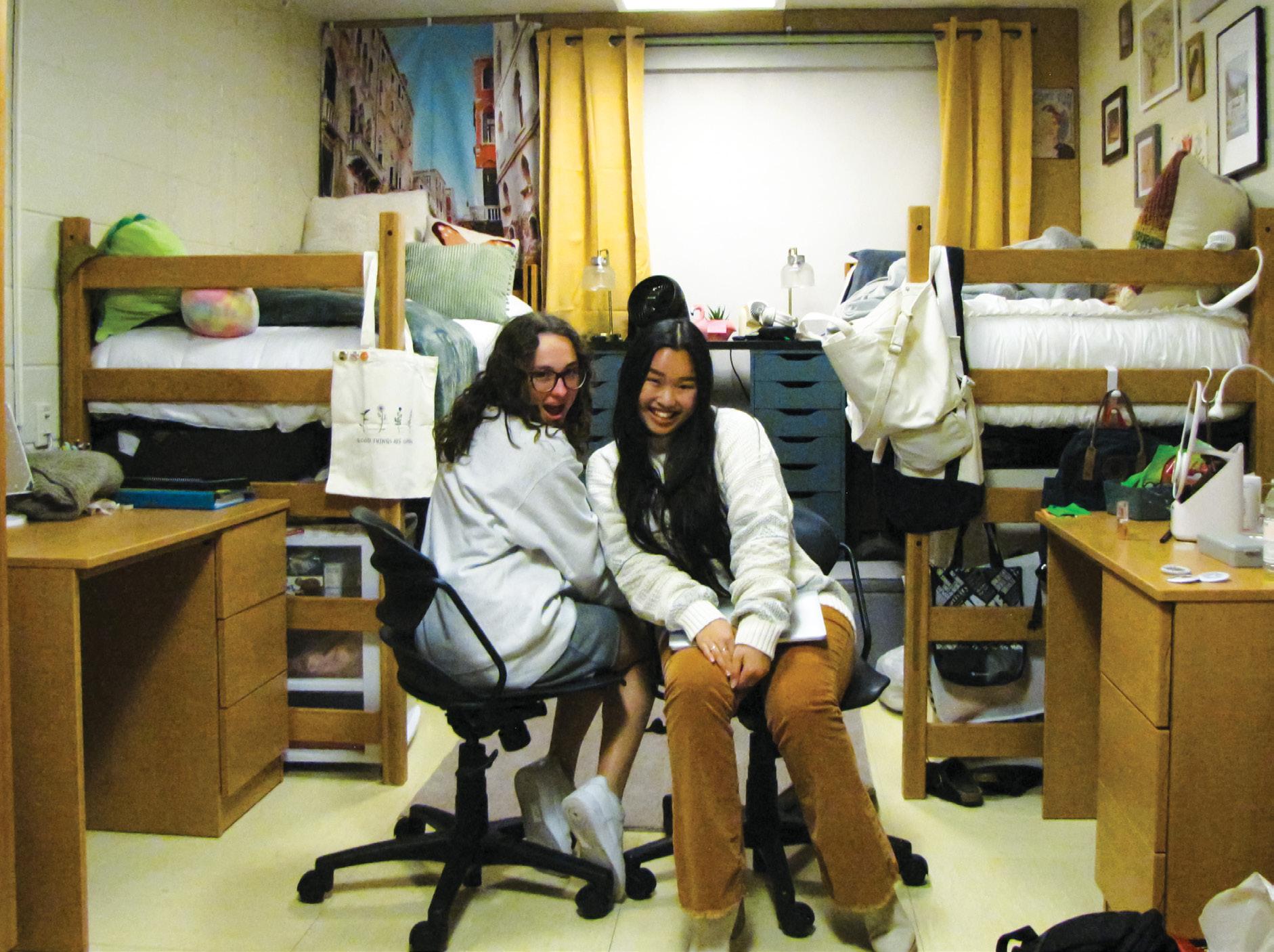
“I think the biggest transition is having independence,” Mary Augusta Paris, a sophomore communication sciences and disorders major, said. “We have a whole kitchen this year and [we’re] just learning things about maintenance, like how to keep the refrigerator clean and stuff like buying groceries since none of us have a meal plan.”
Paris, who now lives in Campus View but lived in Logan Hall her freshman year, said one of the hardest parts of living in a dorm was constantly having to share a small space with another person. A great benefit of having an apartment, Paris said, is having her own room.
“Socially, it’s kind of hard always sharing a space with one person,” Paris said. “It’s just hard to have alone time. Living in an apartment you have your own room, which for me has been a blessing — I think for all my roommates, too.”
Jocelyn Martínez, a sophomore political science major, lived in McGraw-Long Hall and now lives in The Hills Southview. Martínez agreed that, though she liked her roommate, she enjoys having her own space now.
Paris said living off campus has helped her socially in some aspects, however, she said she finds it a little limiting. Not being on campus all the time, both Paris and Martínez said, can be a blessing and a curse.
“It was hard being constrained to the campus,” Martínez said. “I really wanted to explore the city, which wasn’t as easy as it is now [living]
off campus, though it is nice being on campus because you’re close to events. But, sometimes it’s kind of nice to get away from the busyness. I mean, there’s always something to do on campus, but there’s always so many people. It’s nice to go back to my apartment where it’s kind of quiet and peaceful.”
Paris also weighed the pros and cons of offcampus living, considering location and ease of access.
“Being on campus is really convenient,” Paris said. “Everything’s in walking distance — the library, food, seeing people. I mean, even just at D-Hall, you always run into people. [When living off campus] it’s just easier to do whatever you want to do. In the dorms you’re kind of solidified to one space.”
Laith Mekouar, a senior media arts and design (SMAD) and marketing double major who lives in the Lady Slipper Townhouses, said he also found the social aspects of living on campus beneficial, especially being around others all the time.
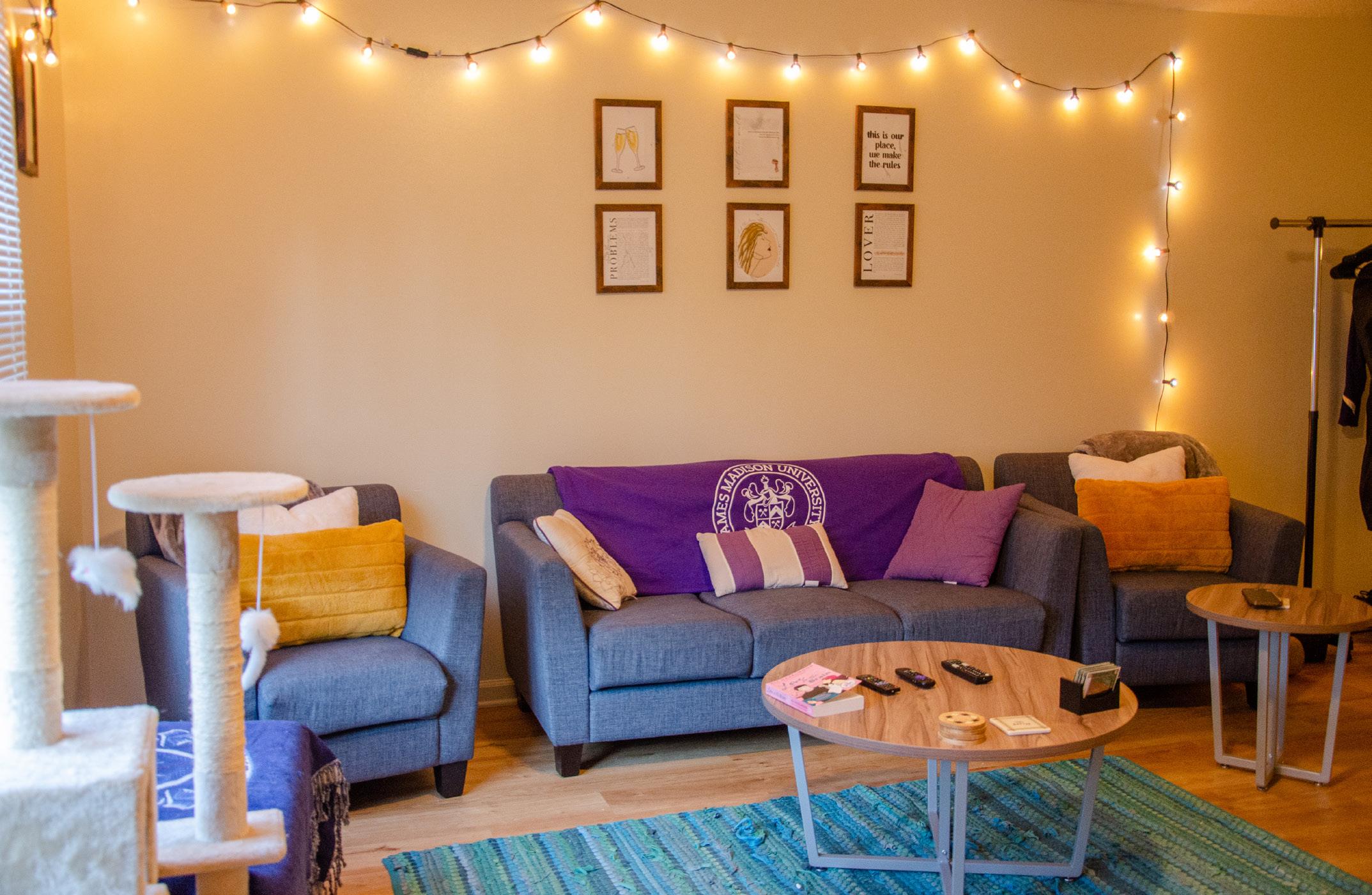
“In my dorm, I’d get lonely, but I was never really lonely,” Mekouar said. “There was always someone there.”
Though Mekouar found it nice not to be completely lonely when he lived in McGrawLong Hall during his freshman year, he said he values the ability to have his own space. He said he especially finds the smaller things, like having his own bathroom — which, at Lady Slipper, is attached to his room — to be especially nice.
“If I want to be by myself, I can,” Mekouar said. “You really can’t do that in a dorm.”
All three students agreed that one big problem with living off campus is finding places to park when commuting to campus for class.
Mekouar, when speaking about the price of living on versus off campus, said he finds that in the end, the costs of either option balance out.
“My rent is [$515] a month plus utilities,” Mekouar said. “It’s a lot more expensive than you’d expect. When you live in a dorm, you don’t have things like plates, pans, silverware or decorations for places other than your room.”
Paris and Martínez, on the other hand, agreed that living off campus can be cheaper. Martínez pointed out that, while she does have to pay her rent monthly, it doesn’t seem as much as having to pay for room and board or a meal plan — something Martínez said those who move off campus often forgo. Last year, JMU’s room and board averaged out to $11,074 according to JMU’s website.
“[When] you live on campus … you have to have a meal plan,” Martínez said. “[Living] off campus, we have the option, and a lot of us choose not to get one because they’re expensive.”
According to JMU Card Services, for the 2022-23 academic year, resident meal plan prices range in cost from $2,849 — 14 punches per week, $275 in Dining Dollars per semester and seven guest meals per semester — to $3,195 for the All Access Plus plan: unlimited punches at D-Hall and E-Hall, $275 in Dining Dollars and 12 guest punches per semester and three punches per day for Duke Deals and equivalency punches.
Commuter meal plans include a wider array of options that range from the $936 Block 50 plan — 50 punches per semester and $175 in Dining Dollars — to the All Access Plus for $3,195.
Paris also said that while her parents pay her rent, she does find that not having to have a meal plan or eat on campus all the time has helped make the cost of college a little more manageable. Another benefit of living off campus Paris mentioned is having her own car and being able to use it to go wherever she wants.
“Doing things off campus is so much easier
without having to use the bus,” Paris said. “If you need to go somewhere, like the [grocery] store, you can just jump in your car and go.”
To students looking to live off campus, Paris emphasized the importance of having discussions ahead of time with potential roommates.
“If you have people you want to live with, you have to have tough conversations,” Paris said, “like things about boundaries, groceries, sharing things and just things about their lifestyle.”
Martínez also said speaking to potential roommates about their lifestyles beforehand is important to foster a cohesive atmosphere in the living space. Martínez also said it’s good practice to work on your communication skills with your current roommate, even if you don’t plan to live with them again in the future.
On the other hand, both Mekouar and Martínez discussed the importance of getting your information about apartments from more than one source.
“Make sure when you’re looking, you get information from word of mouth too,” Mekouar said. “I know the housing fair is really popular, [though] I would just recommend talking to other people, too.”
Overall, despite some differing opinions, all three agreed they prefer living off campus to living on campus.
“I mean I did really like my on-campus housing,” Martínez said. “I definitely prefer where I’m living this year. I’d rather live off campus than on.”
CONTACT Morgan Blair at blairml@dukes. jmu.edu. For more on the culture, arts and lifestyle of the JMU and Harrisonburg communities, follow the culture desk on Twitter and Instagram @Breeze_Culture.
AT MENU PRICE ENTIRE ONLINE ORDER

Prepare for independence
Off-campus living equips students for life after college
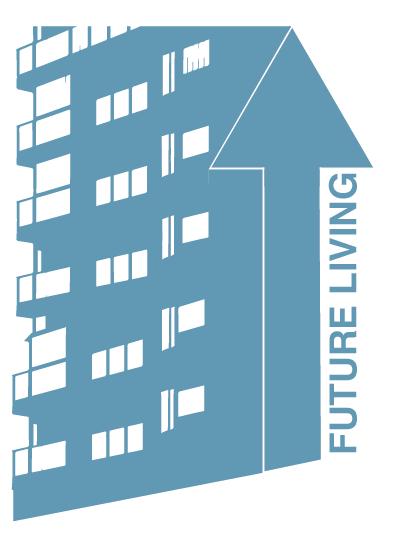 By BRIANNA THWEATT contributing writer
By BRIANNA THWEATT contributing writer



For most students, college is the first time they’re on their own, away from their parents and making decisions for themselves. During freshman year, students live on campus with services such as dining facilities accessible to them, but once students move off campus, they must take on more responsibility — living on their own, paying bills and rent and buying groceries. The Breeze spoke to several stu dents who live off campus about whether they believe their experiences have better prepared them for life after college.
Sophomore Azariah Jackon, who lived on campus last year in Shenandoah Hall, lives at Campus View this year — a student apartment complex off campus. Jackson said living both on and off campus have their upsides, but liv ing off campus gave her the chance to become more independent — spread her wings, she said — than she could’ve in a dorm.
“You still have a community,” Jackson said. “In my apartment, I have four other room mates, but I do have a little bit more monotony now. I have a door that I can close whenever
I want. I have my own bathroom and not a hall-style bathroom that I have to share with everyone at 6 a.m. I enjoy living off campus.”
Jackson said the most difficult parts of liv ing off campus are having to clean and cook for herself, as well as transportation. Howev er, despite all of these factors, Jackson said she wouldn’t change her living situation. Living off campus has given her the opportunity to develop and hone those valuable skills when it comes to living by herself, things she’s now starting to appreciate a lot more, she said.
“I cook for myself, I clean everything as much as I need to,” Jackson said. “I can do things when I want to, how I want to. I can come and go as I please.”
Aside from its benefits as Jackson men tioned, living off campus also provides a “hard hit of reality,” senior Jessica Seymour said.
Seymour said that when she lived on campus, her needs were covered — there were dining halls and almost everywhere she needed to go was walkable — which creates a lot more dependence, she said. Off campus, Seymour said, she’s cooking for herself and transporting herself to and from campus on a regular basis.
“Off campus, you kind of learn how to budget, get a job, be responsible for finding your own transportation and have meals,” Seymour said. “It gives you more an idea of what life is like — where not everything is totally provided for you … Off campus, there’s a lot more independence and different responsibility.”
In addition to Seymour’s perspective, her roommate, senior Jessica Rosanio, also spoke on her experience of living off campus so far. Rosanio said that although there are some aspects of on-campus living she misses — such as the constant interaction with roommates, suitemates and hallmates — being off campus is an upgrade in numerous ways.
Rosanio said her living arrangements, as far as off-campus housing goes, are a “breath of fresh air.” She said her room at her current townhouse is the same size as her previous dorm that she once shared with another student, and that she enjoys now just living in her own and with some of her closest friends — a more realistic housing situation, rather than always being surrounded by people in a dorm.
“There are some differences that I do enjoy as I’m getting older and do have to prepare for
Despite the independence and do-it-onyour-own lifestyle that comes with off-campus living, each student who spoke to The Breeze came to a unanimous decision that living off campus helps prepare students for life beyond college.
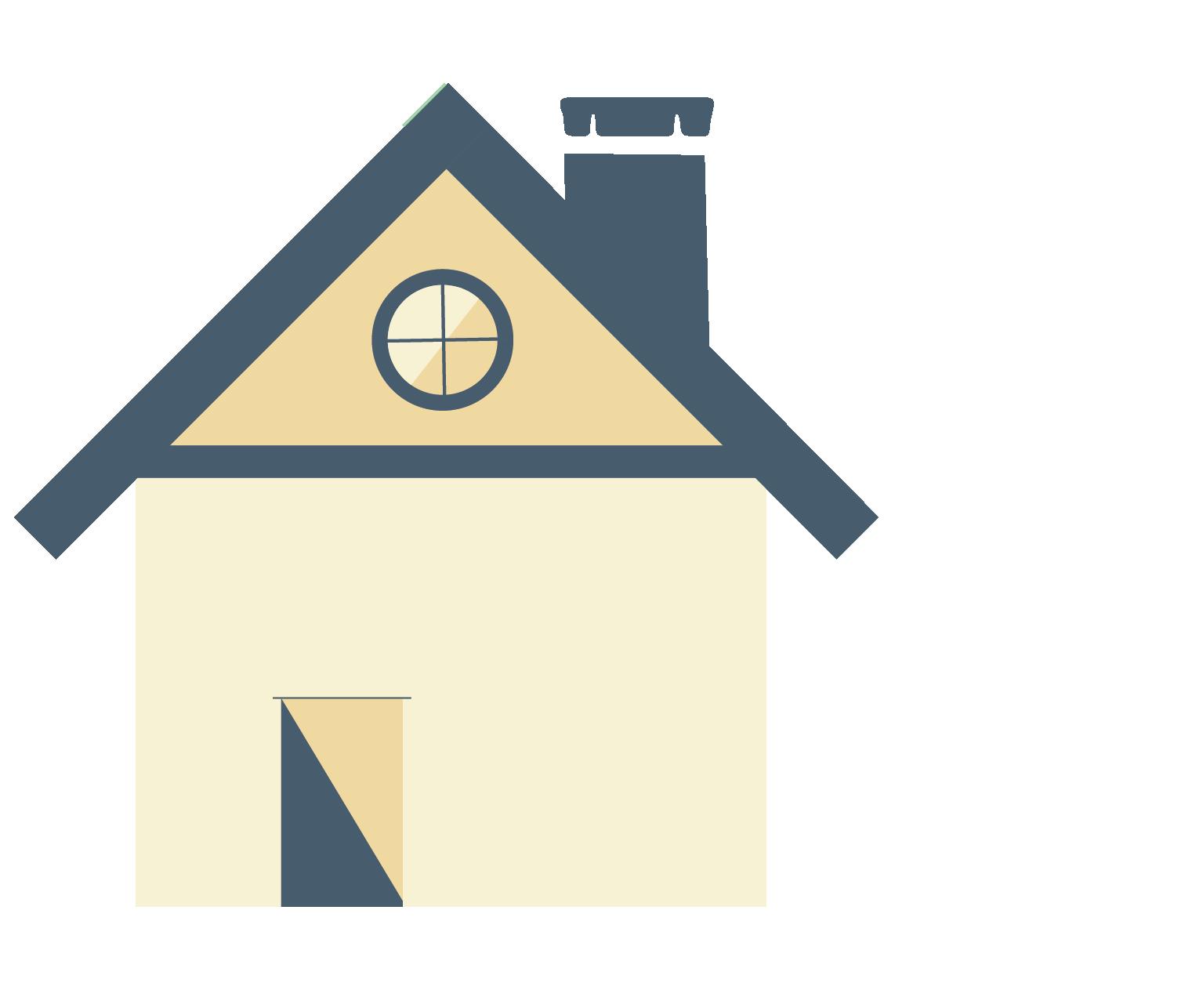
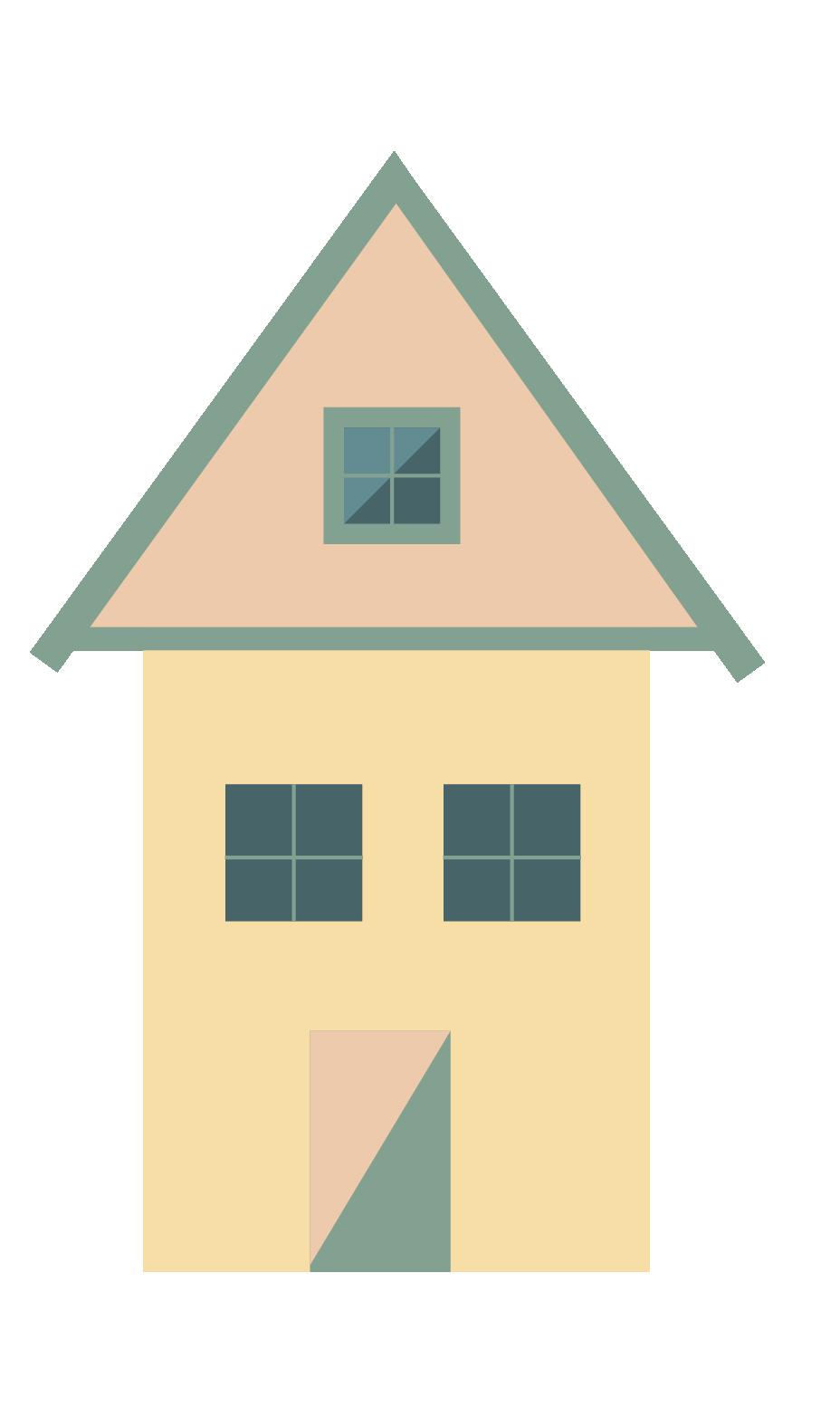
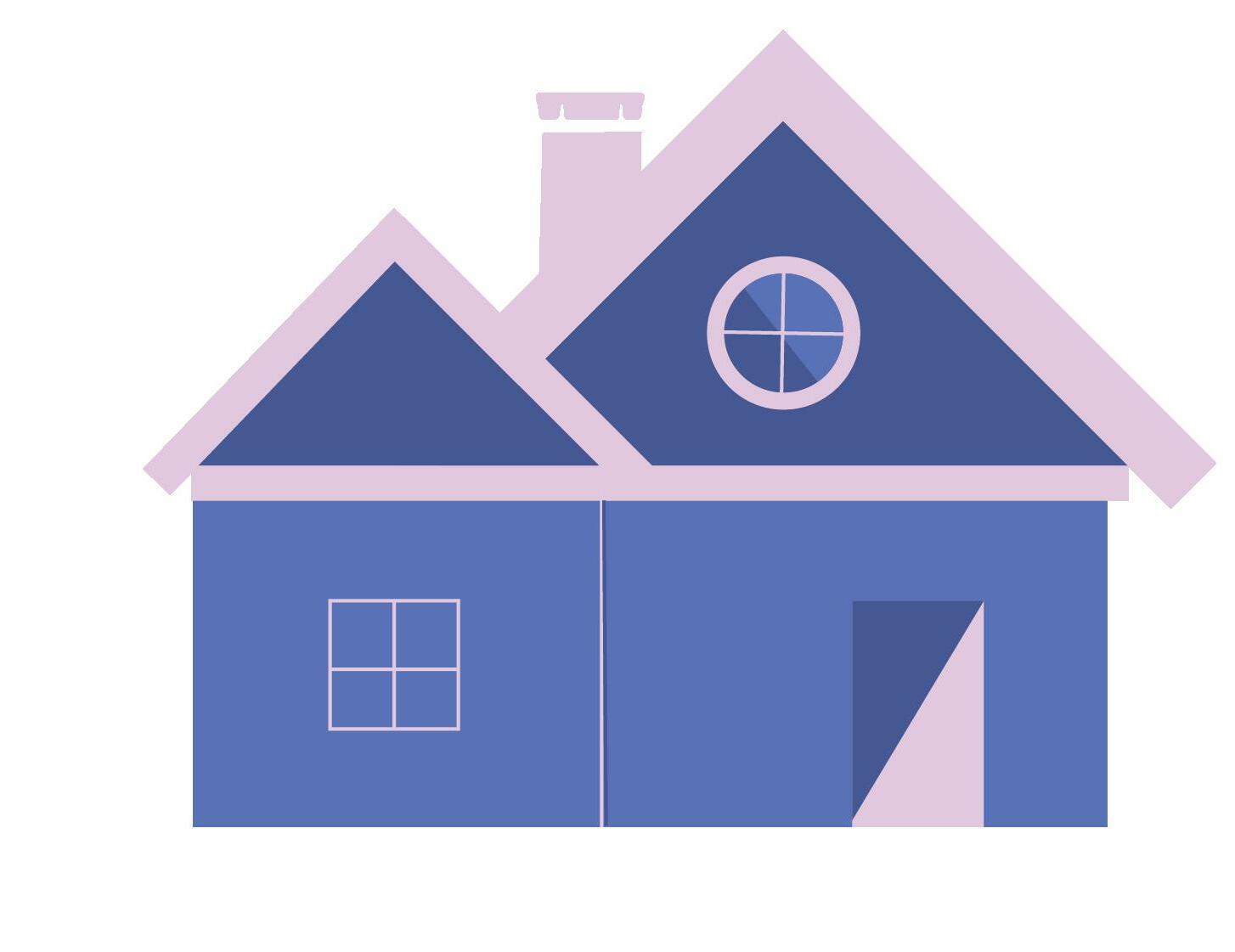


“I definitely think that living off campus prepares you for life a little bit better,” Jackson said. “It’s an enriching experience [and] it’s a very good experience because you’re really doing it on your own … So, I’m not fully adulting, but I’m like 75-85% the way there, and I feel that the apartment is really helping with that.”
Rosanio said living off campus is a “learning experience” of how to survive on your own. Seymour agreed.
“I think it’s a good trial and error since you’re still in college and can make your mistakes now rather than later,” Seymour said.
CONTACT BriAnna Thweatt at thweatbf@ dukes.jmu.edu. For more coverage of JMU and Harrisonburg news, follow the news desk on Twitter @BreezeNewsJMU.
